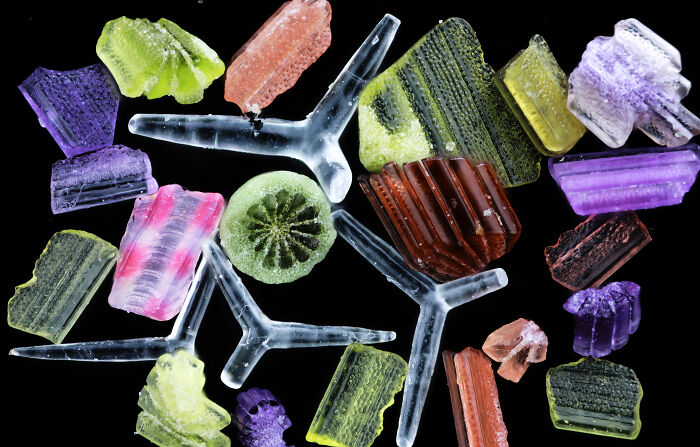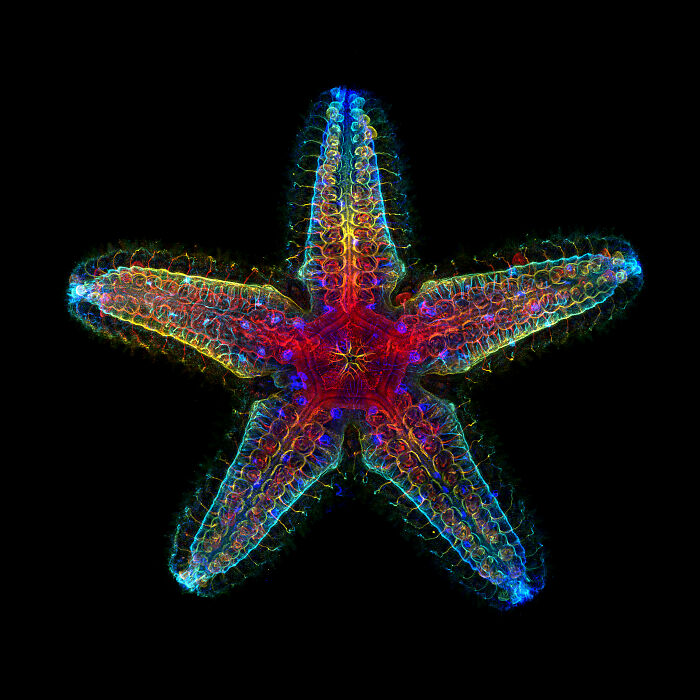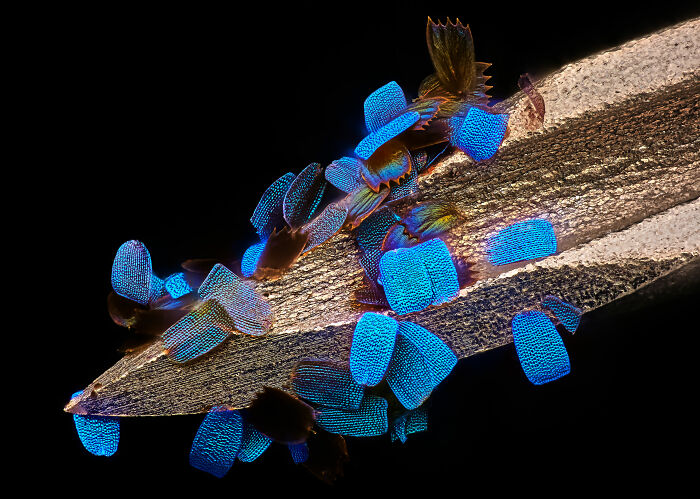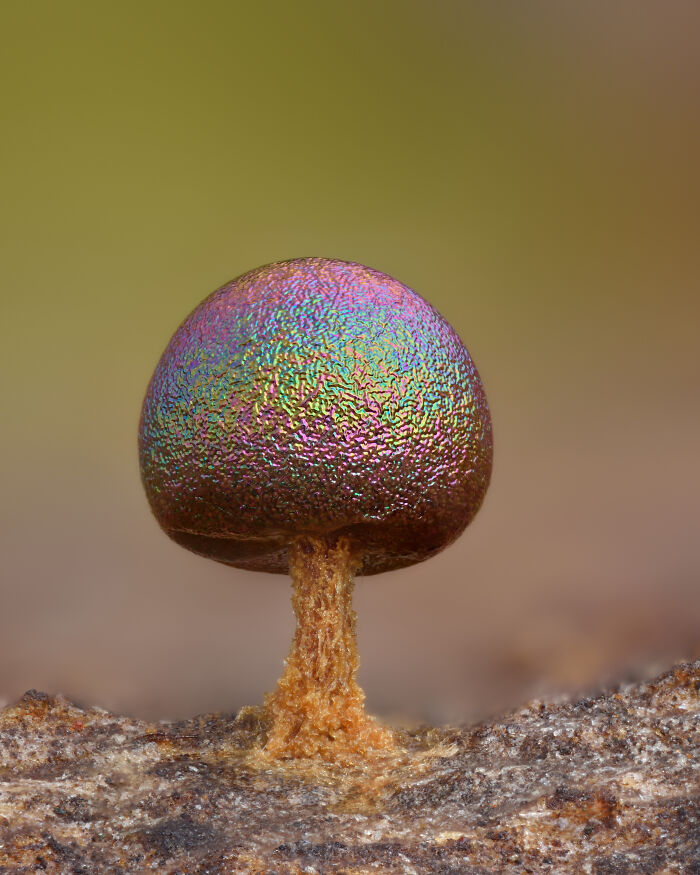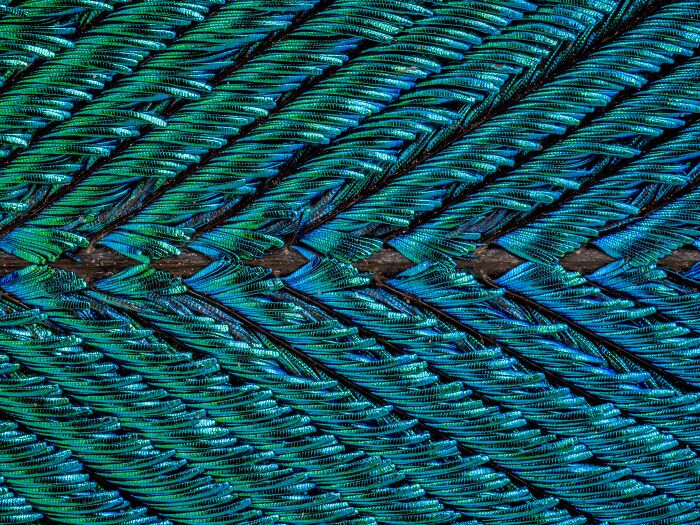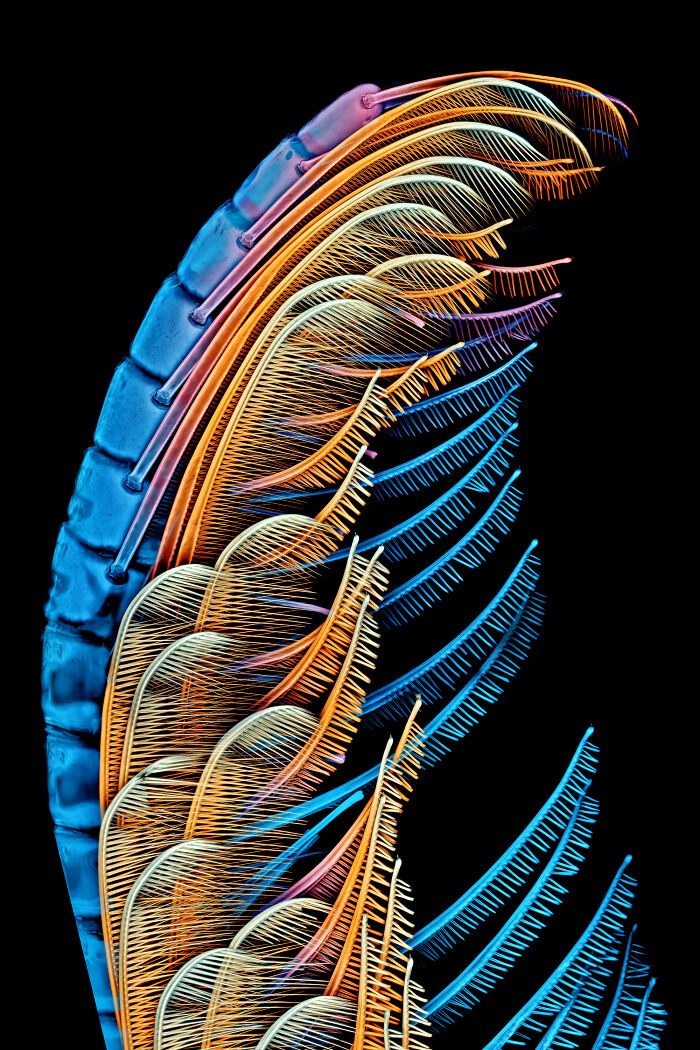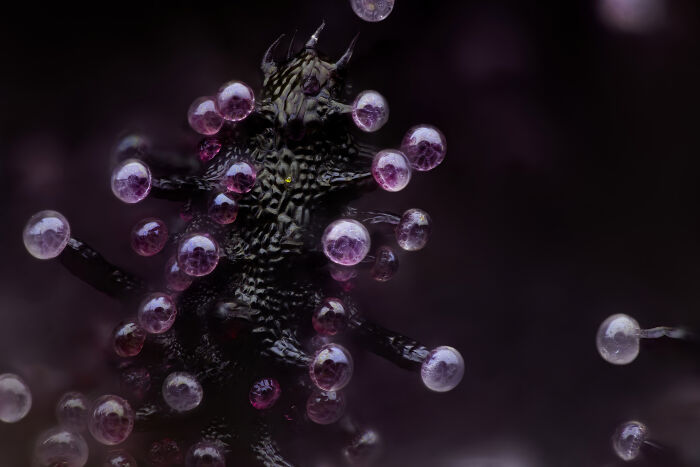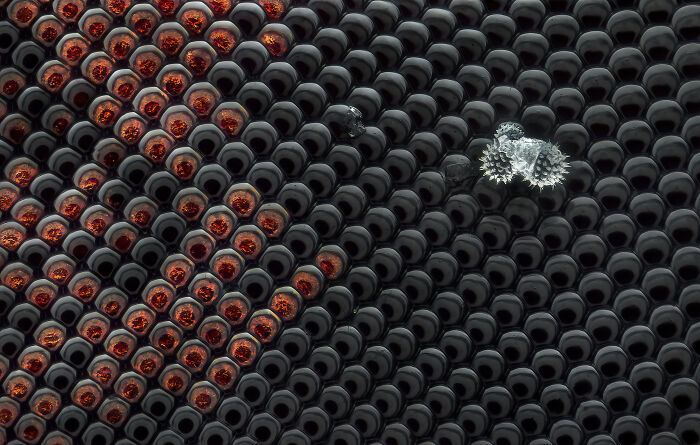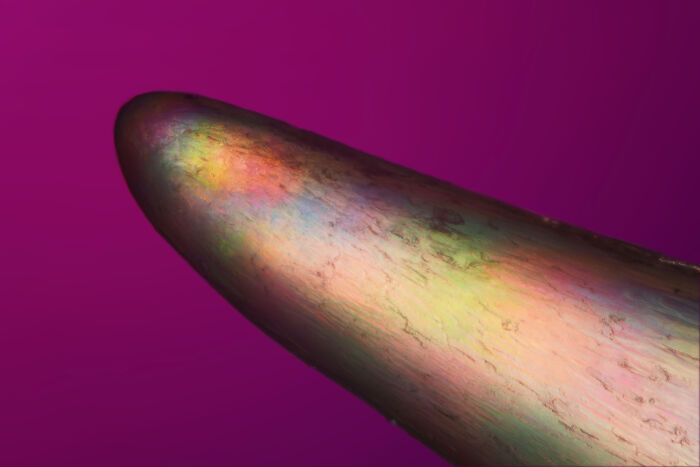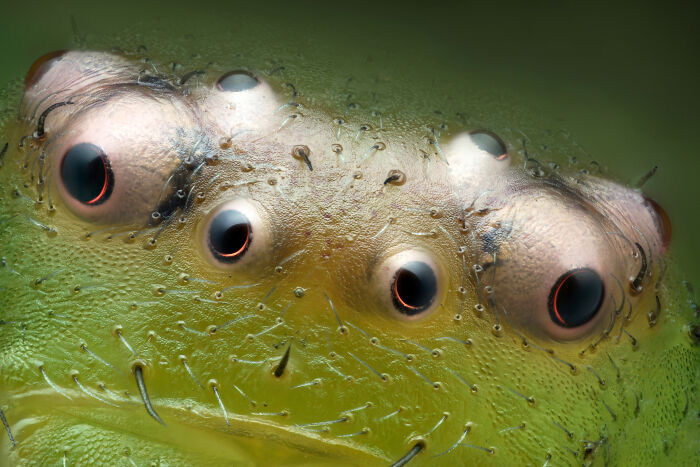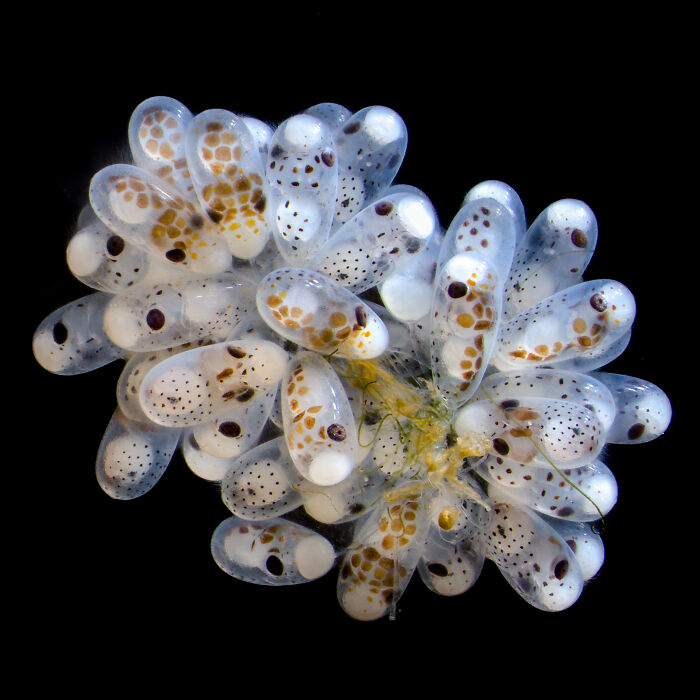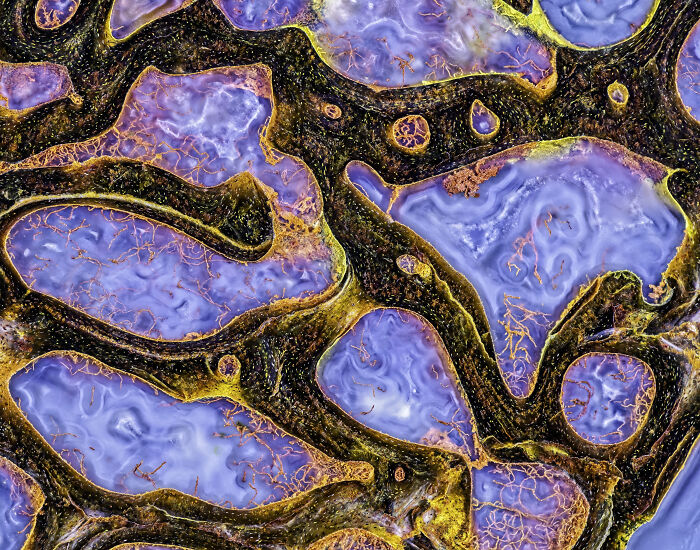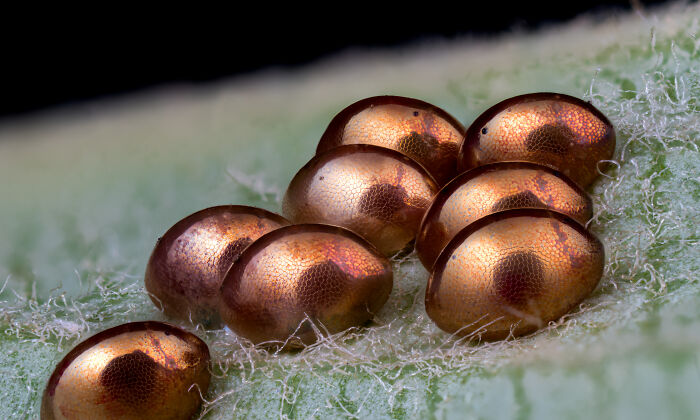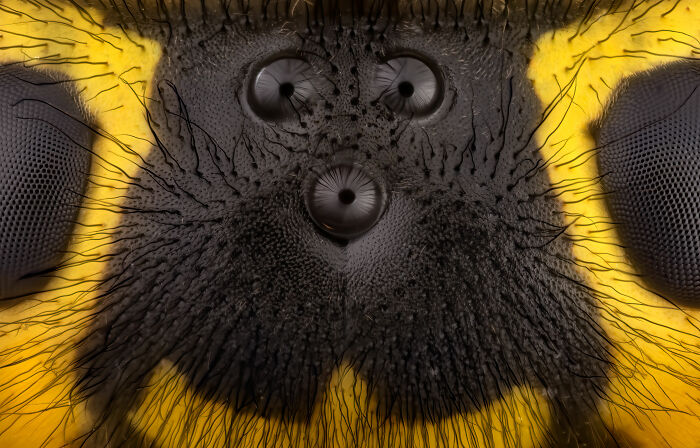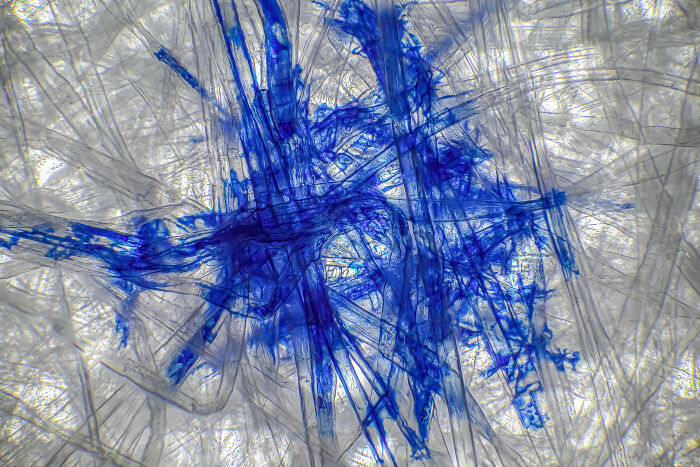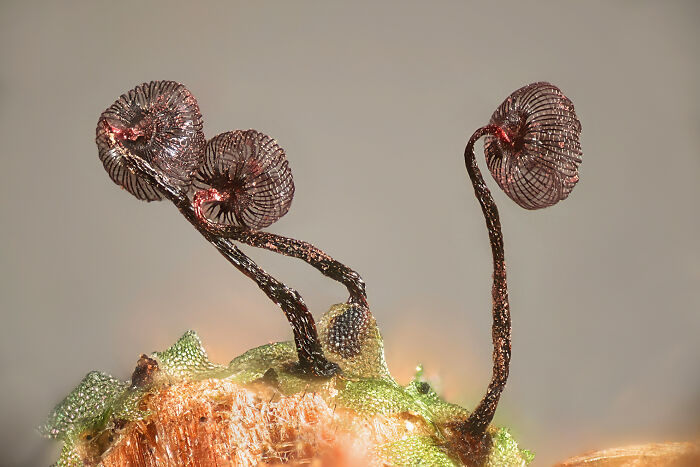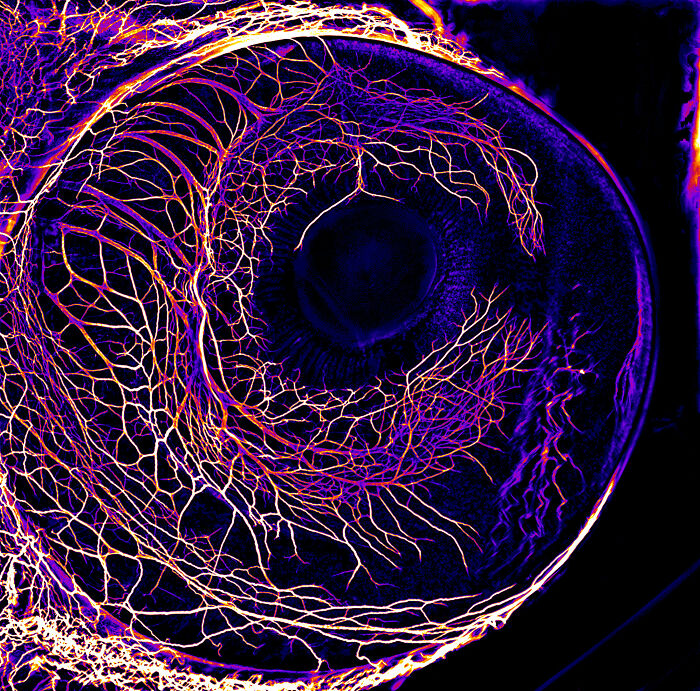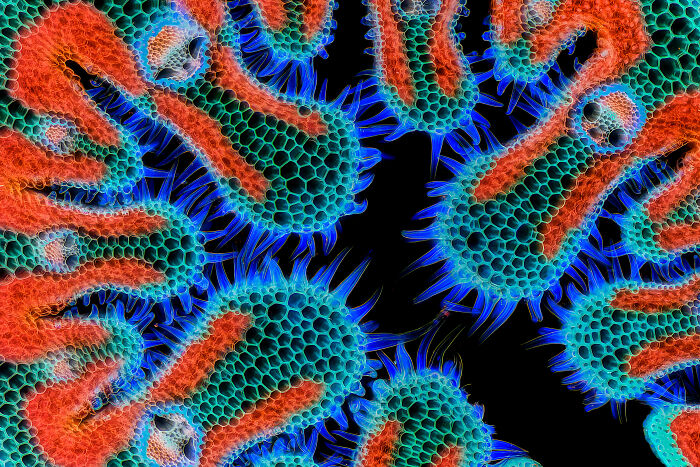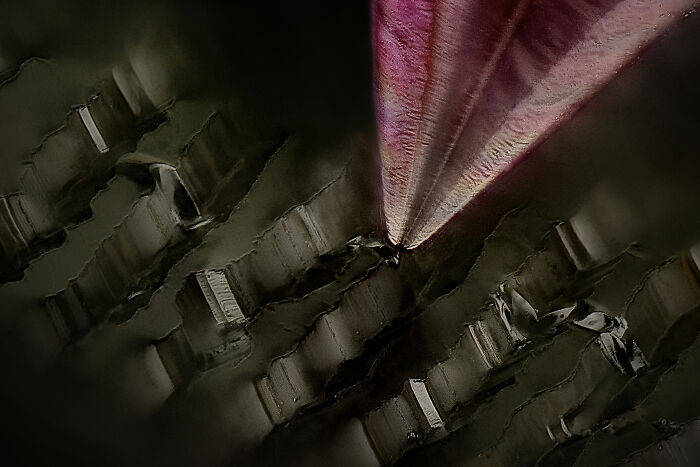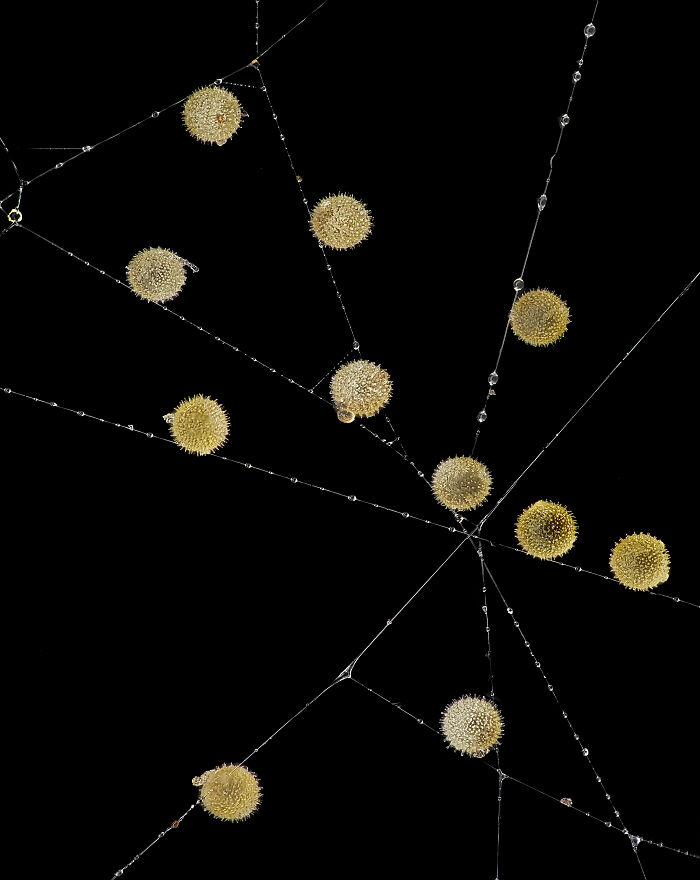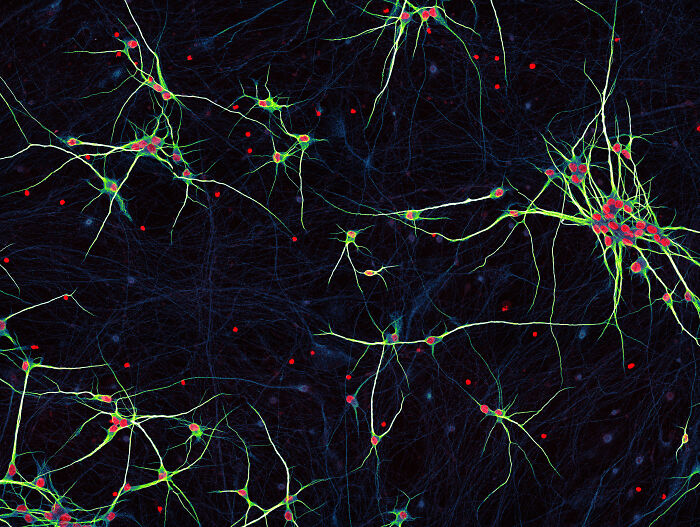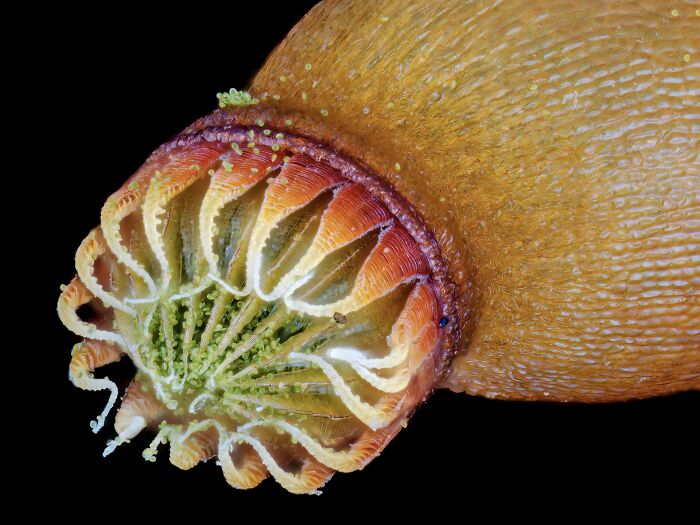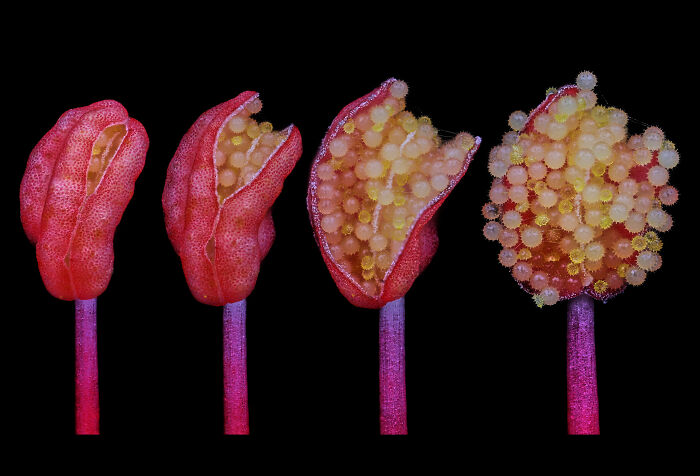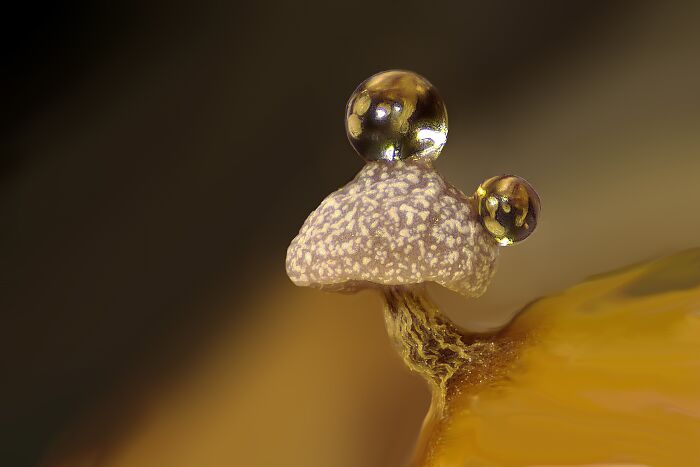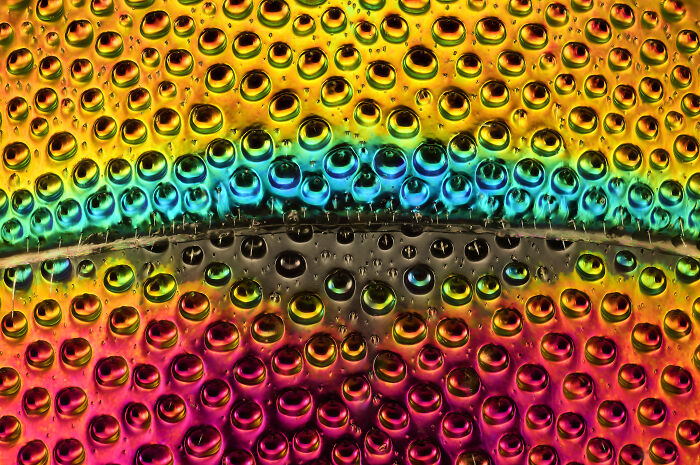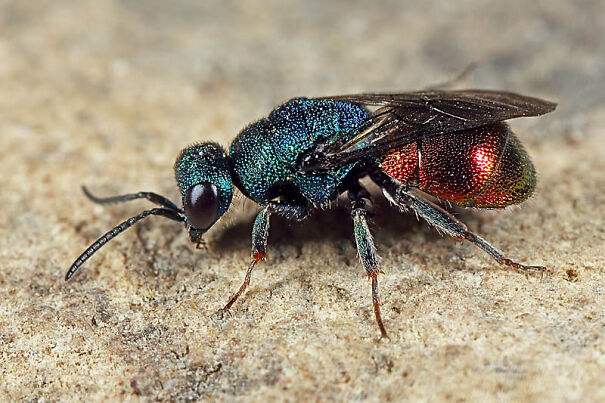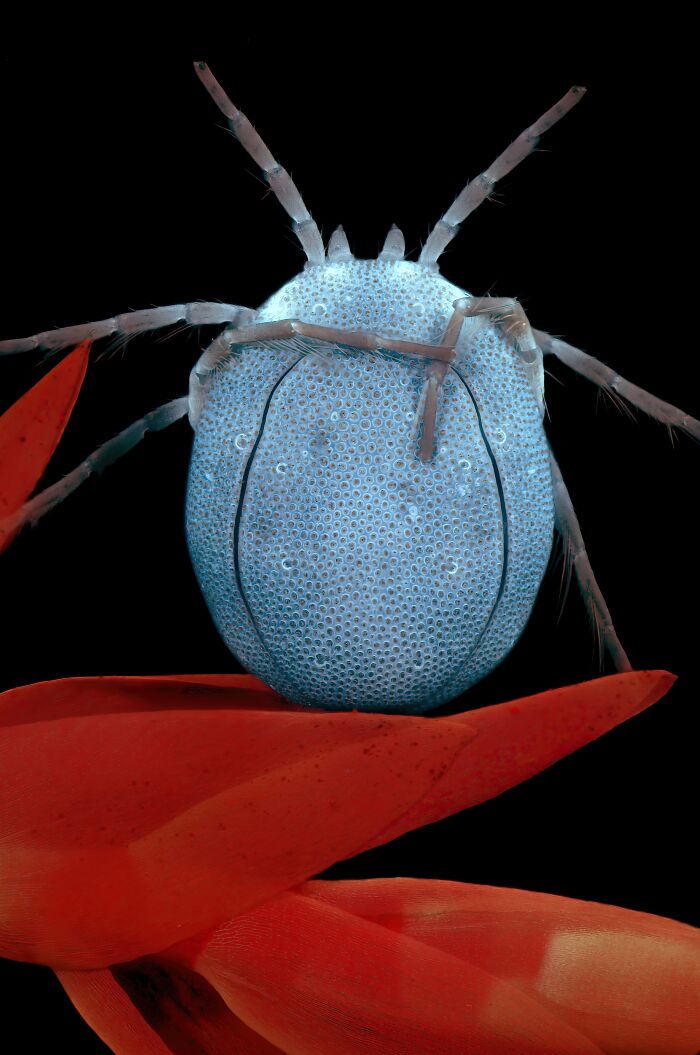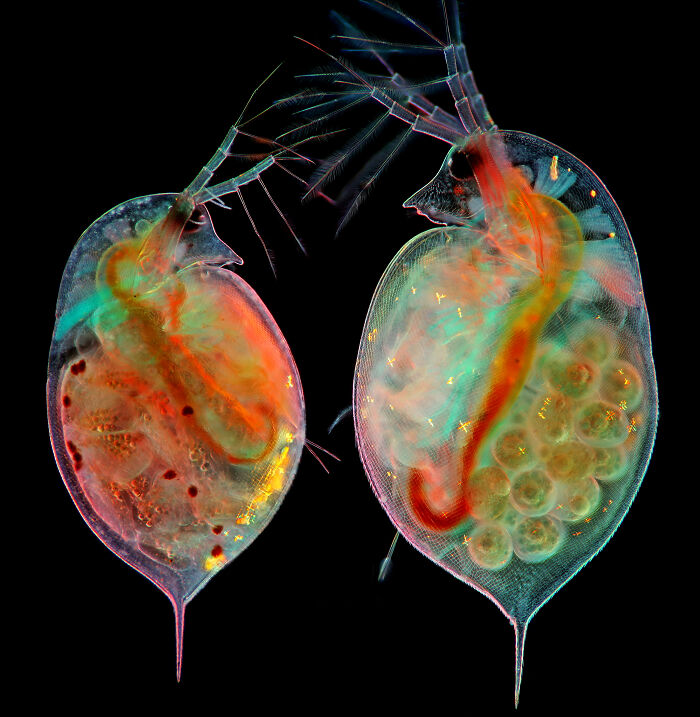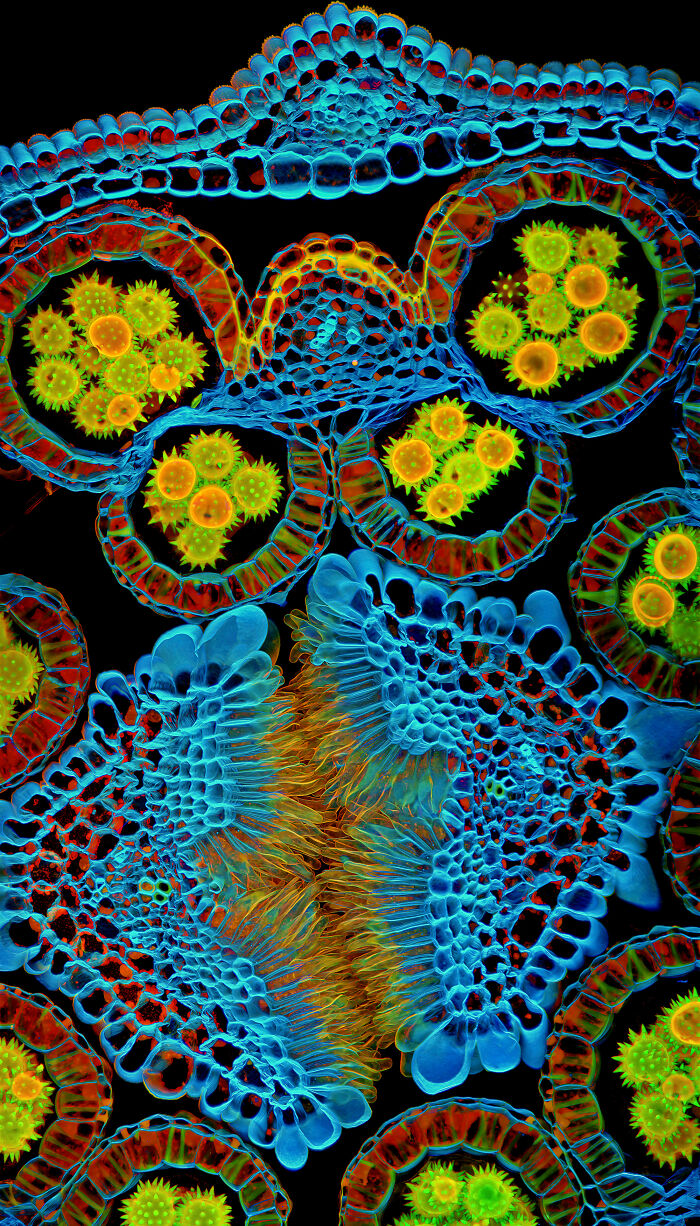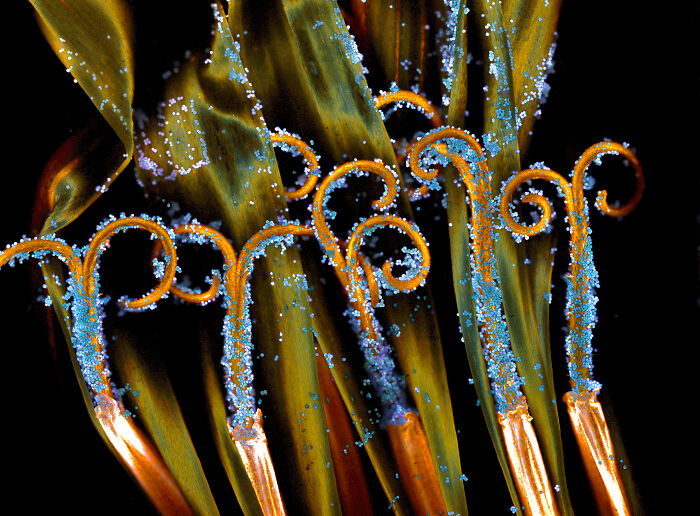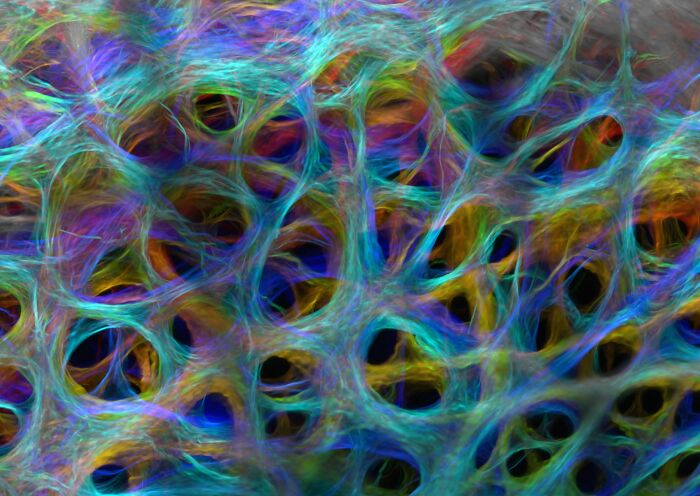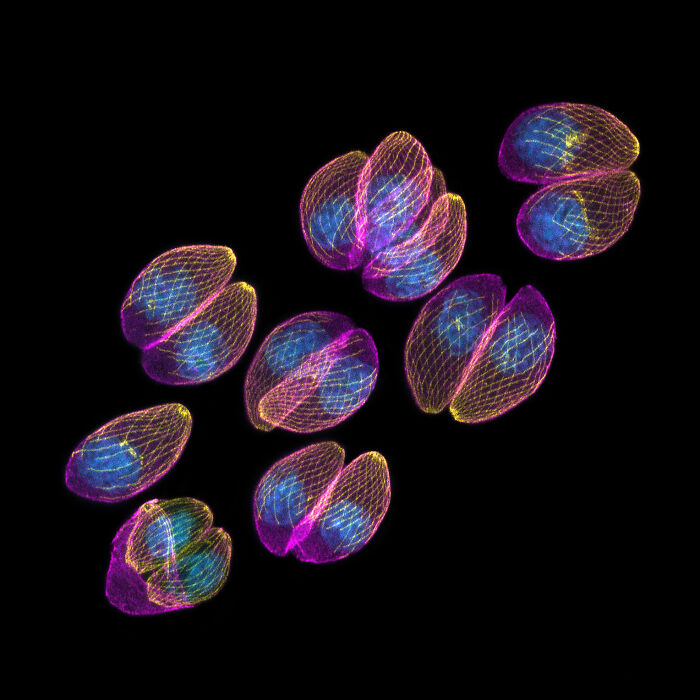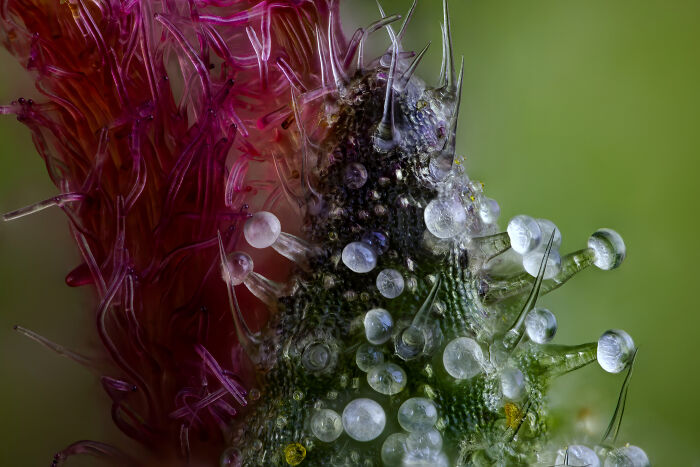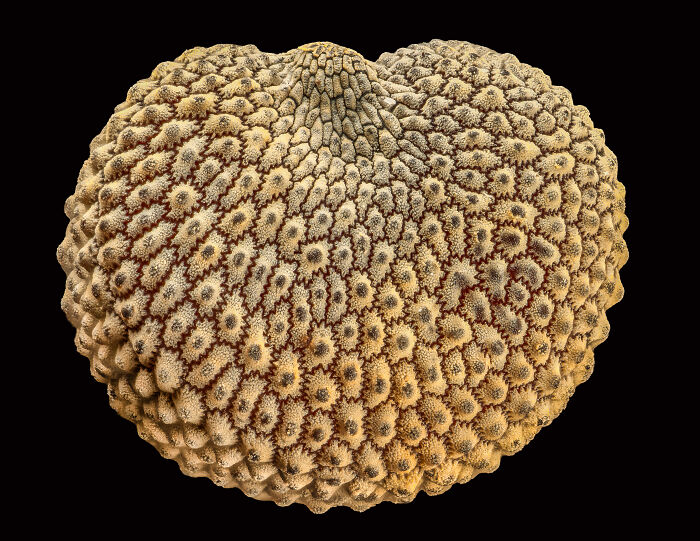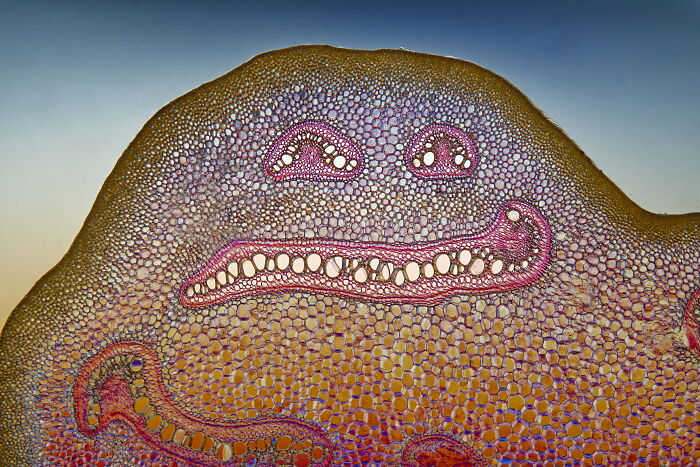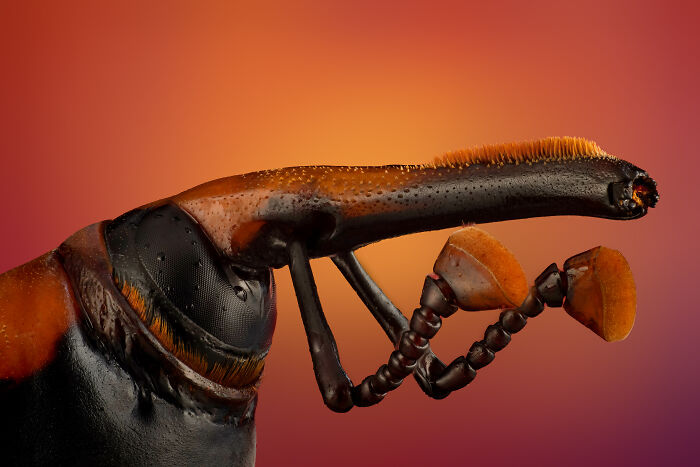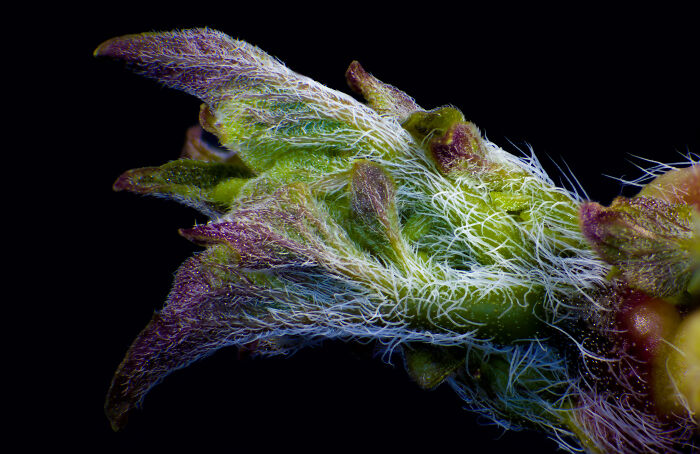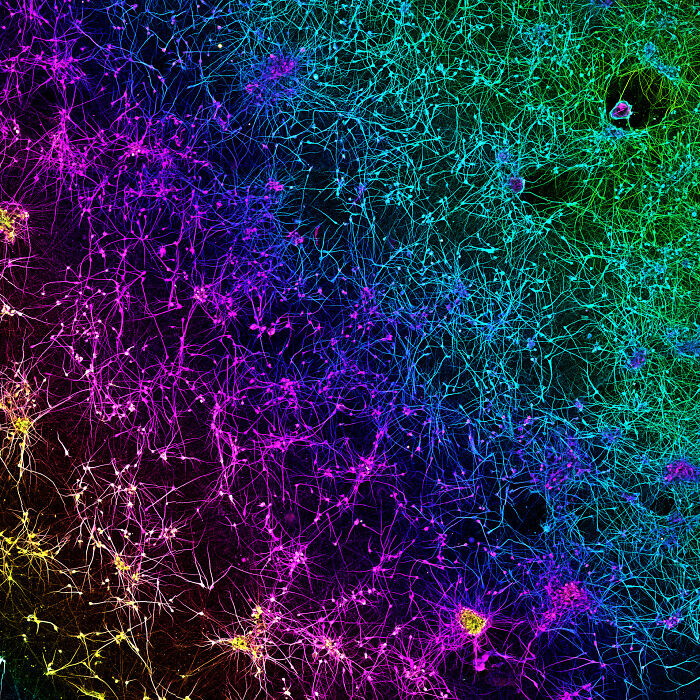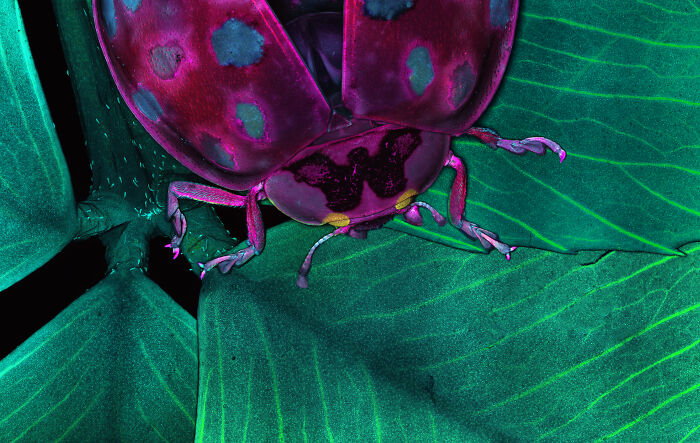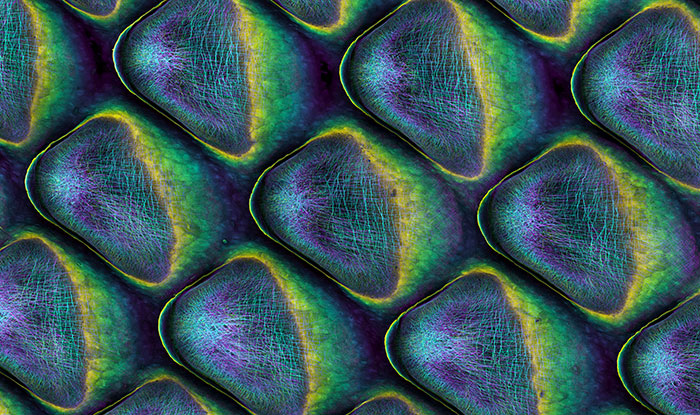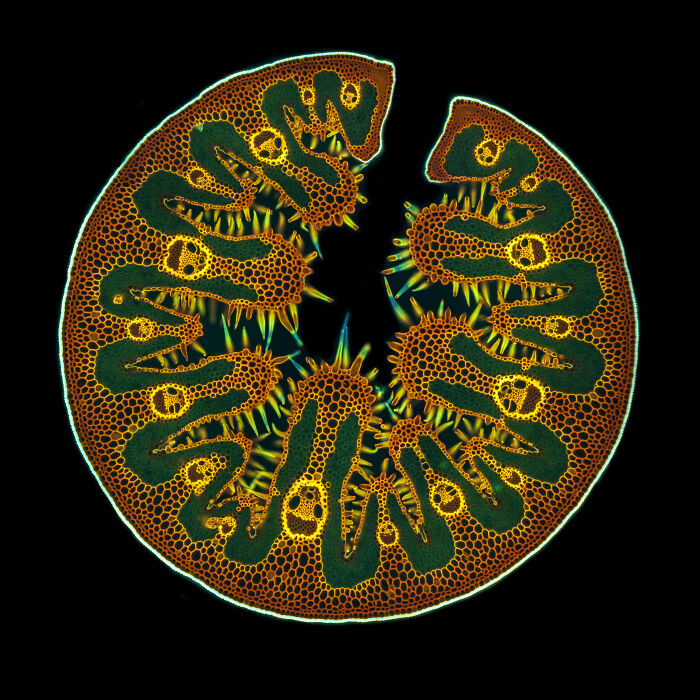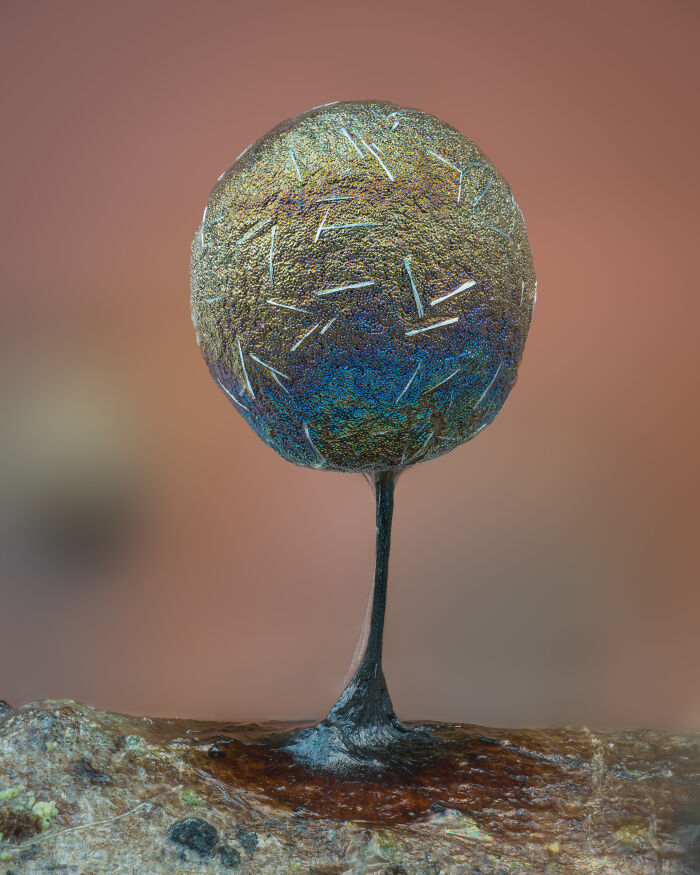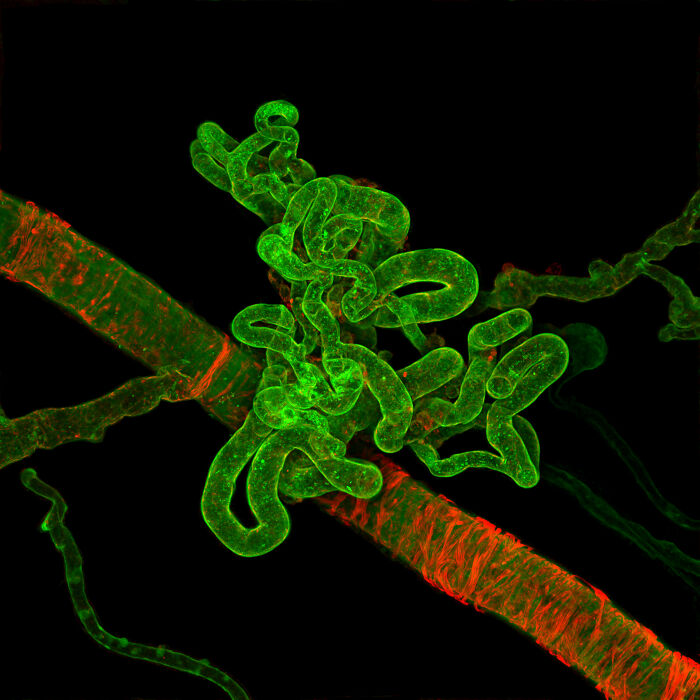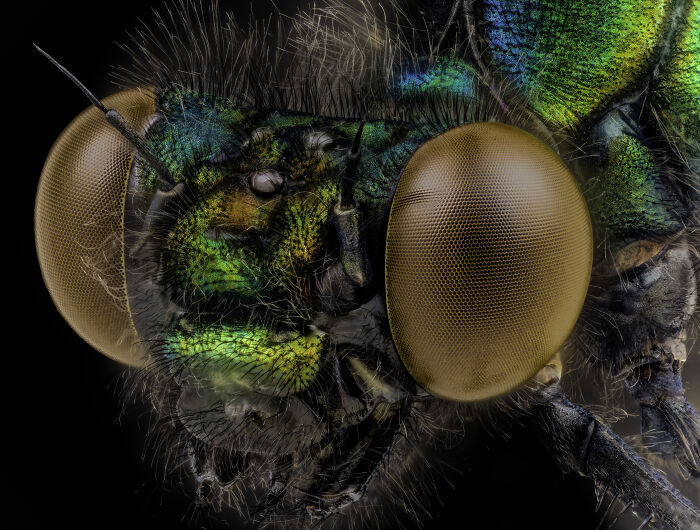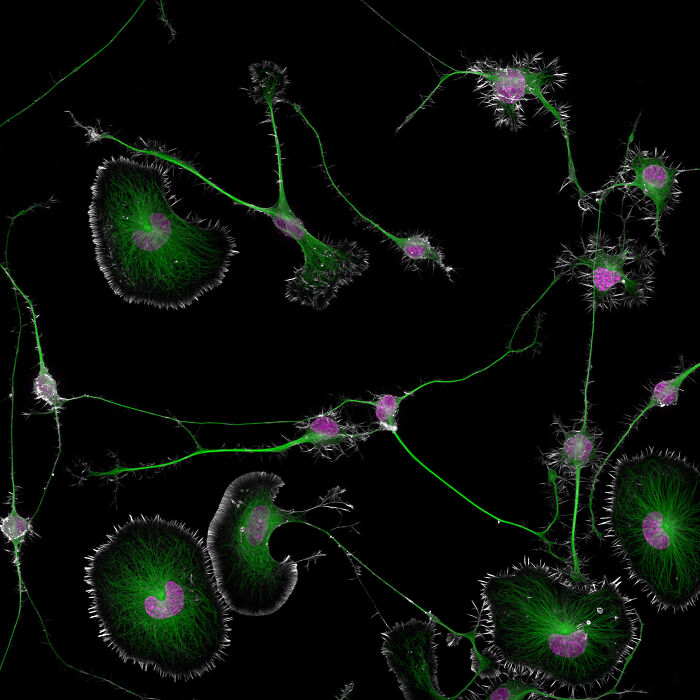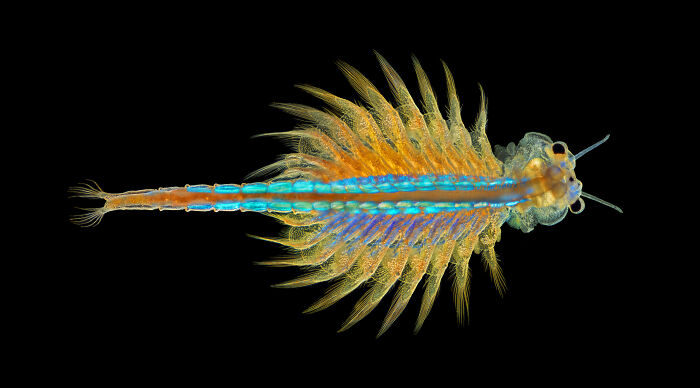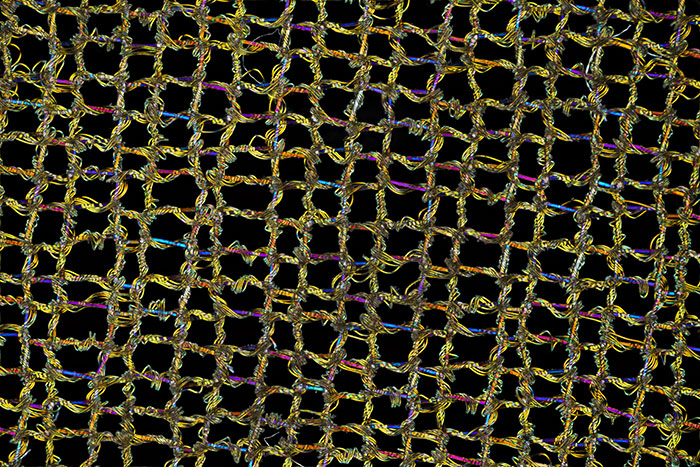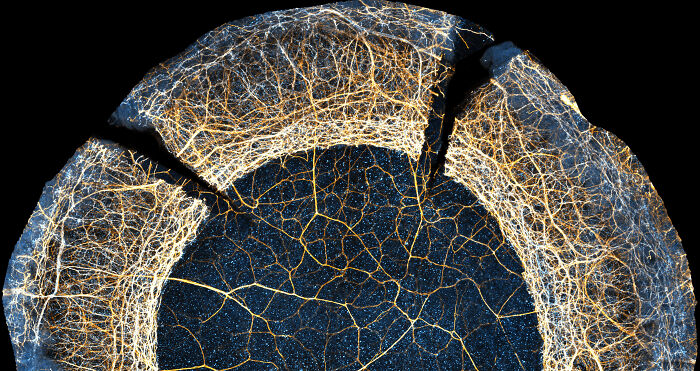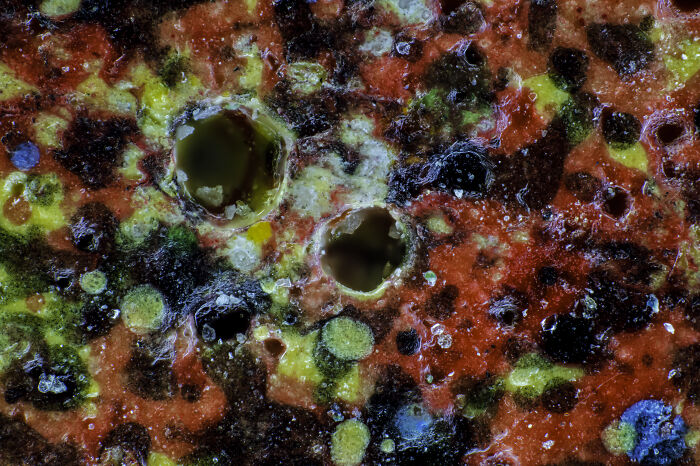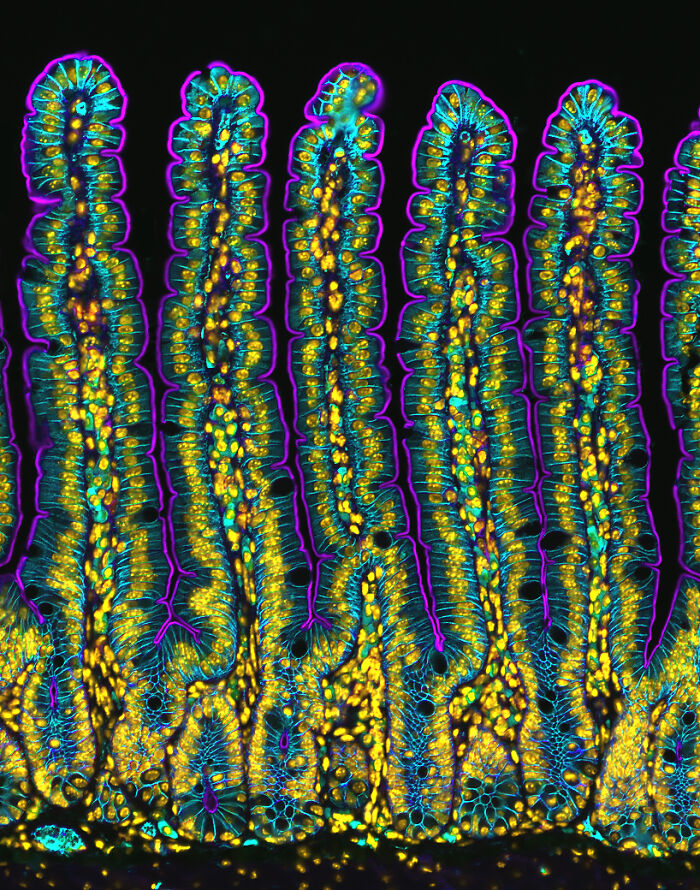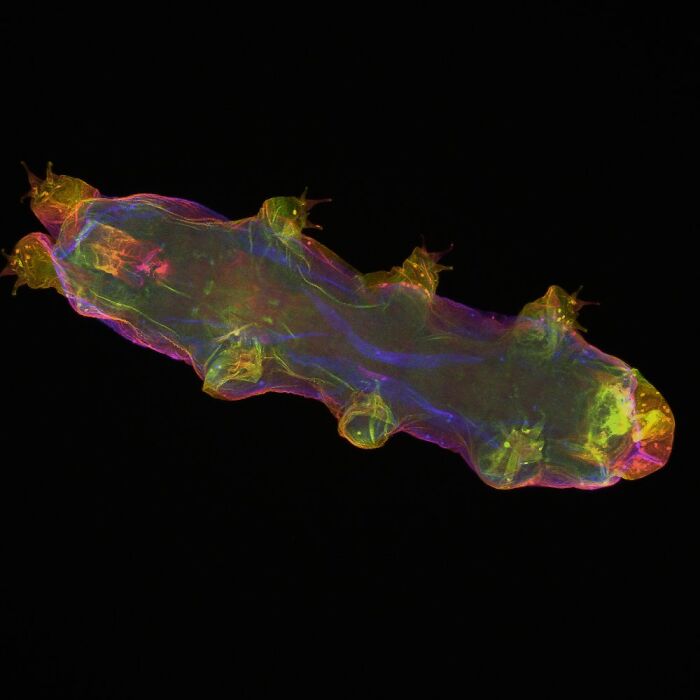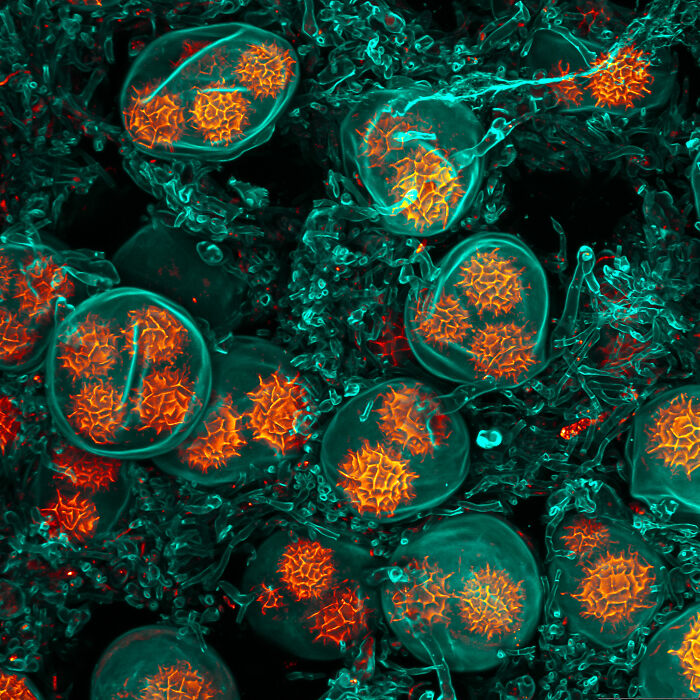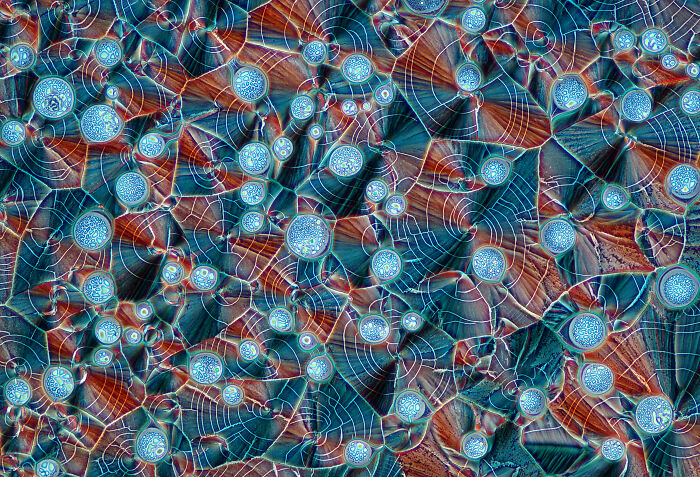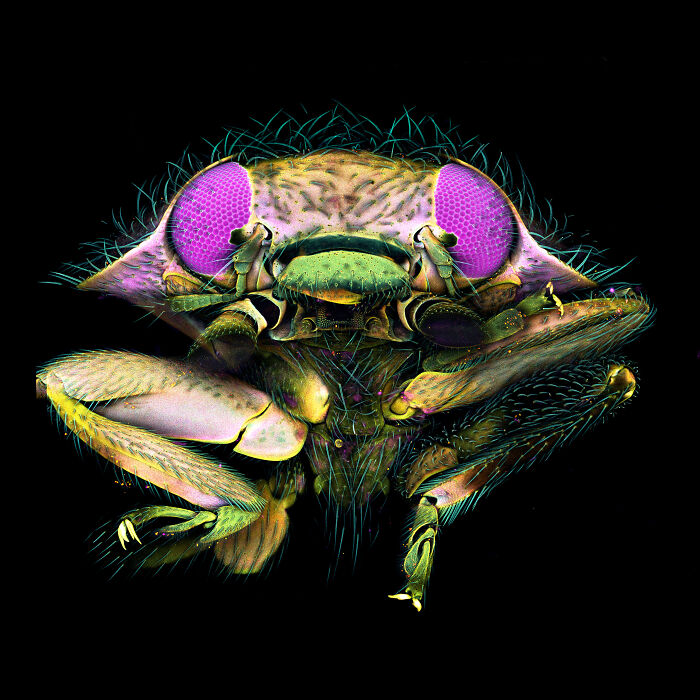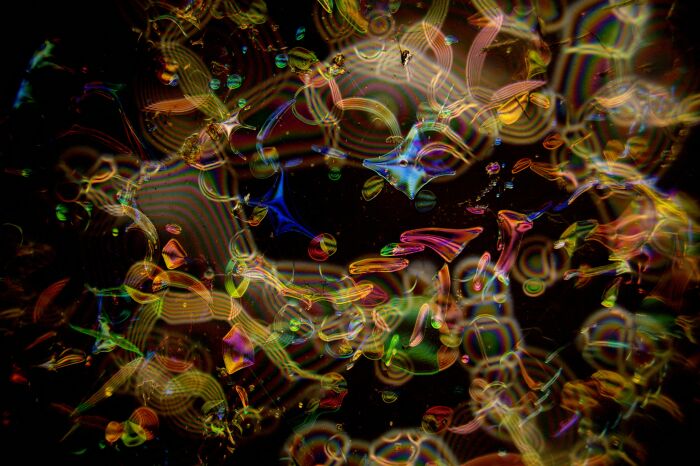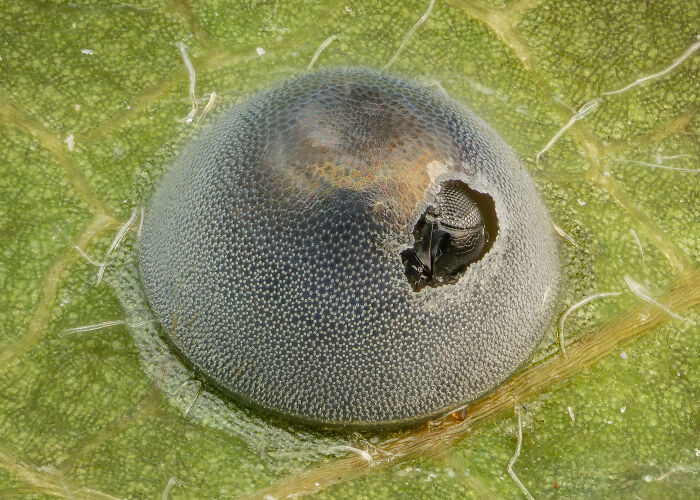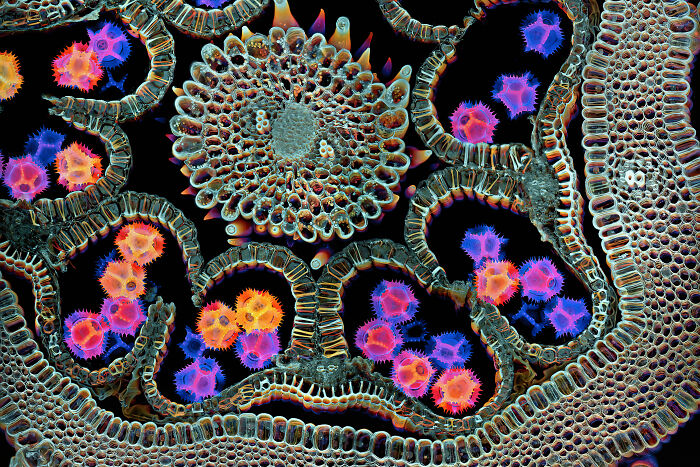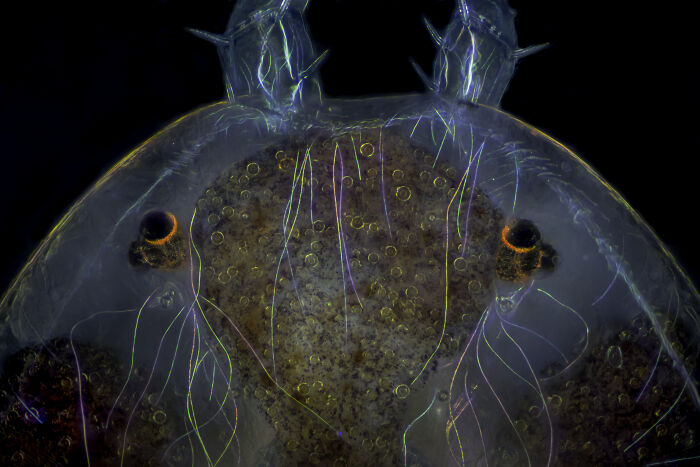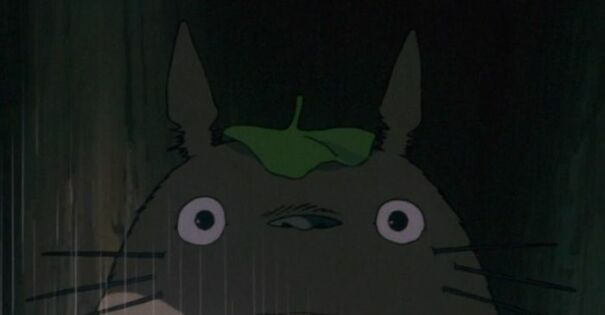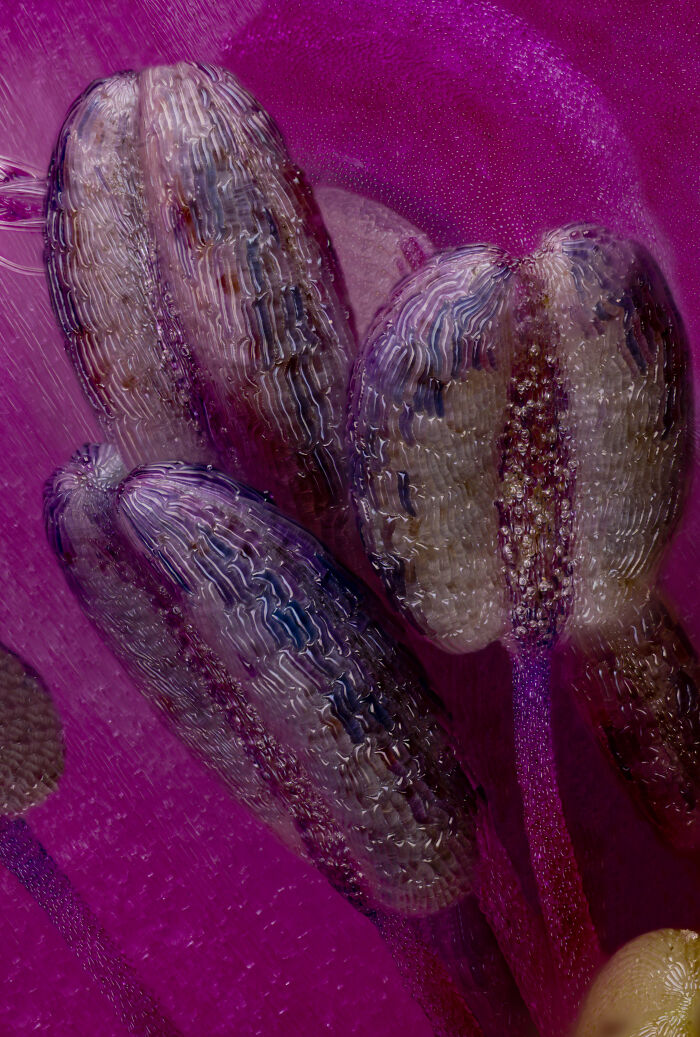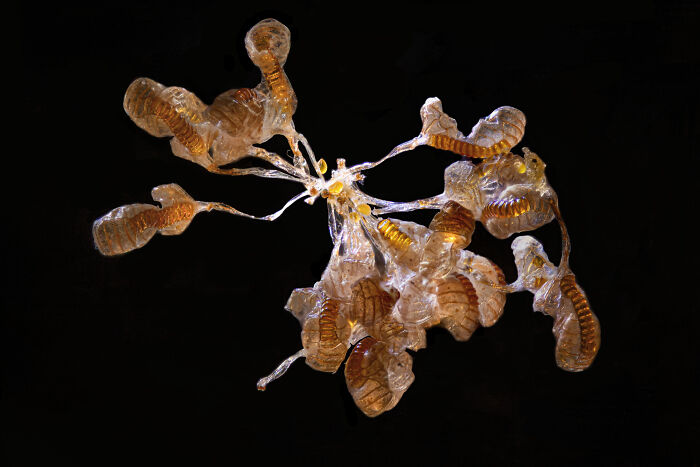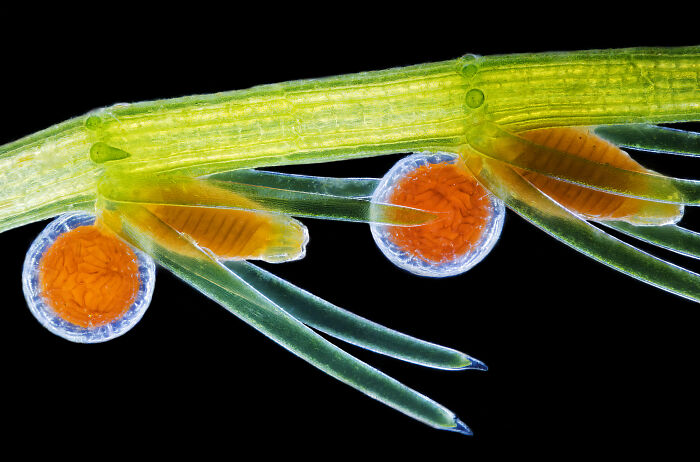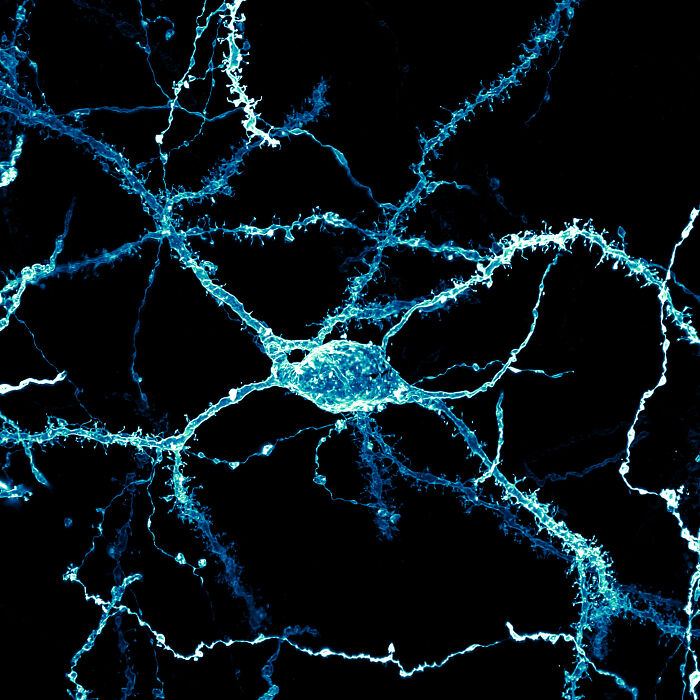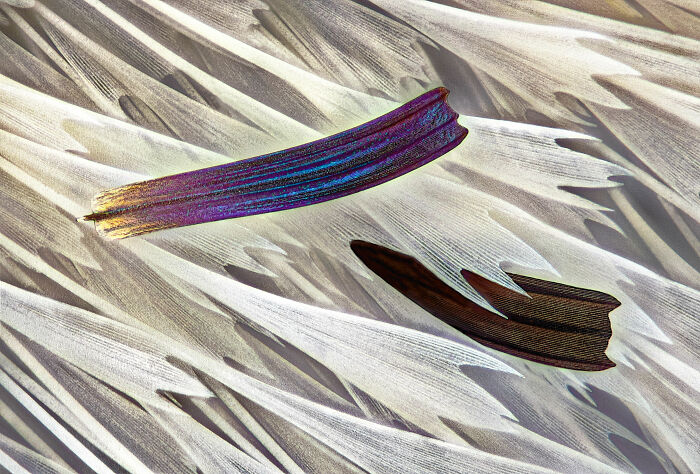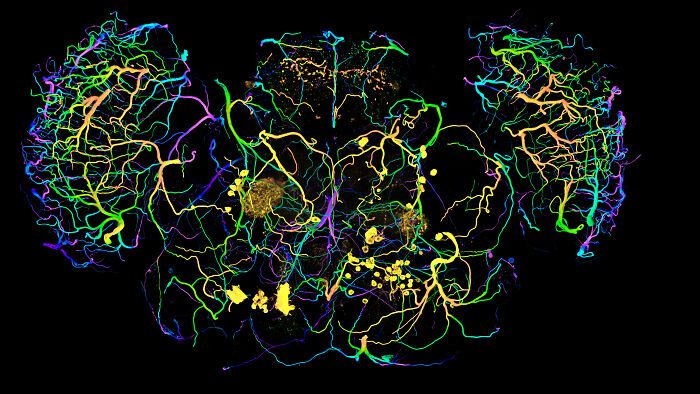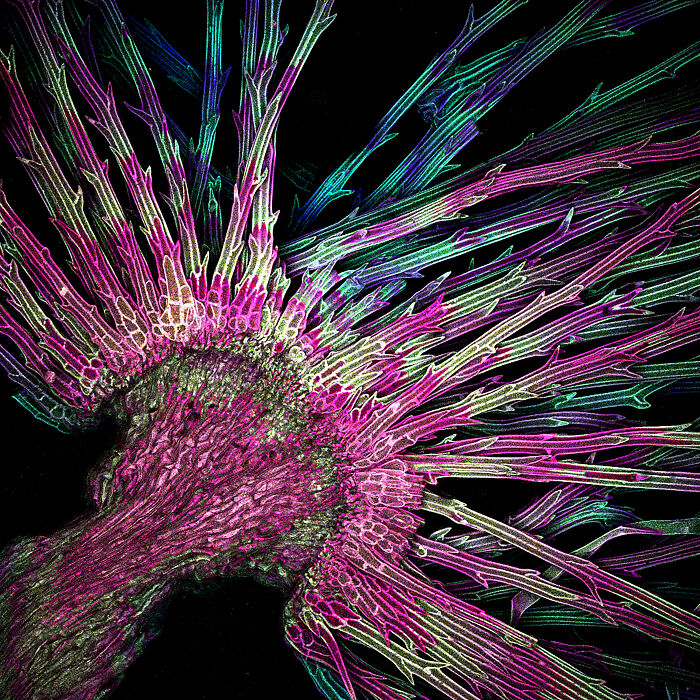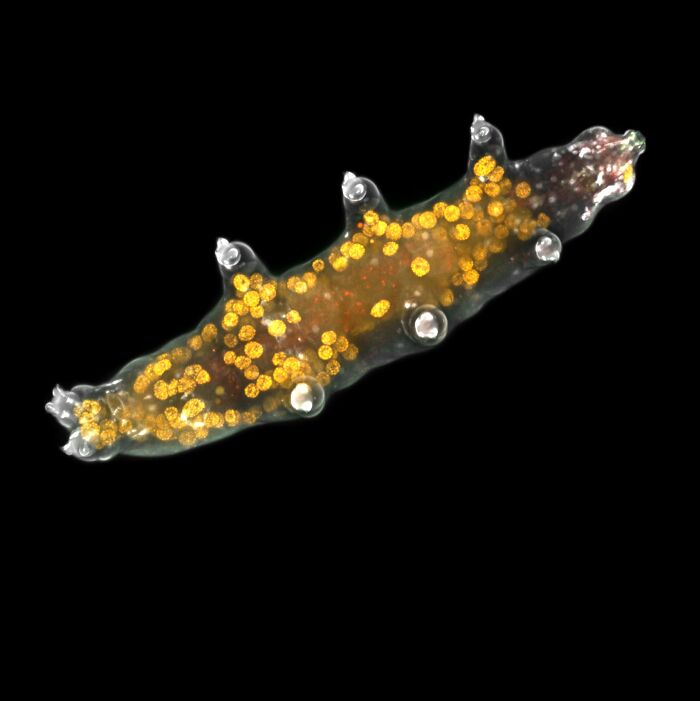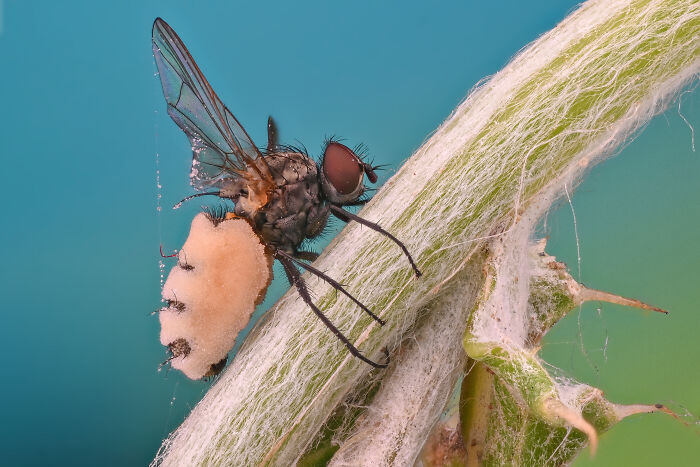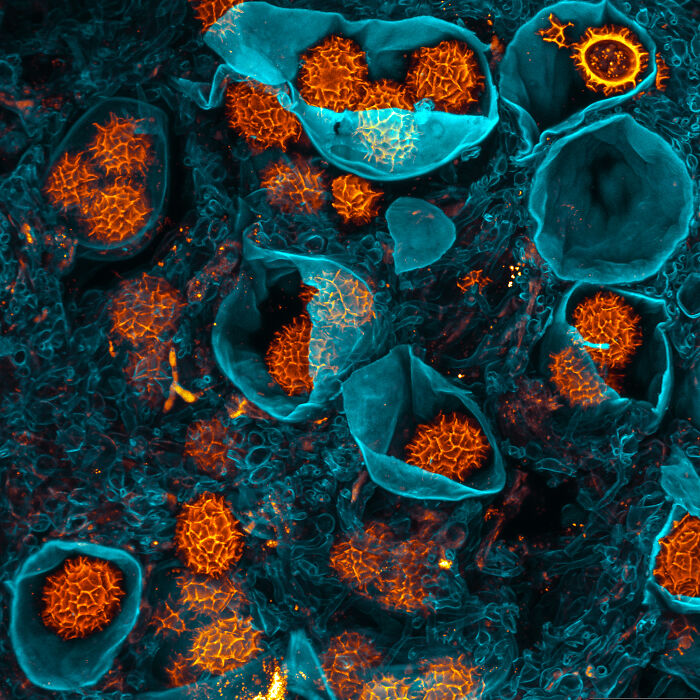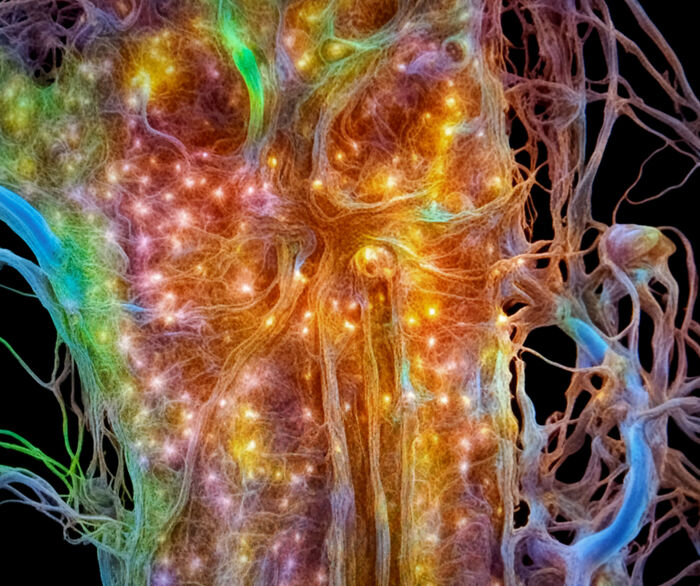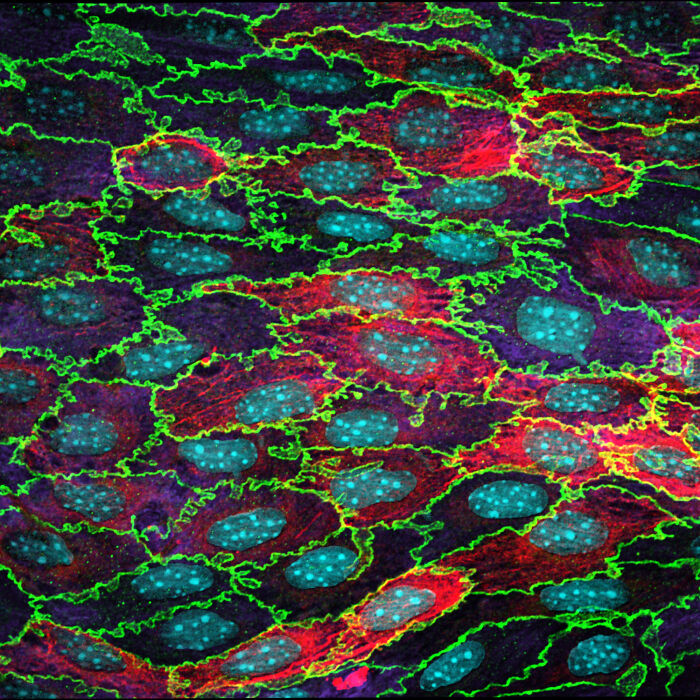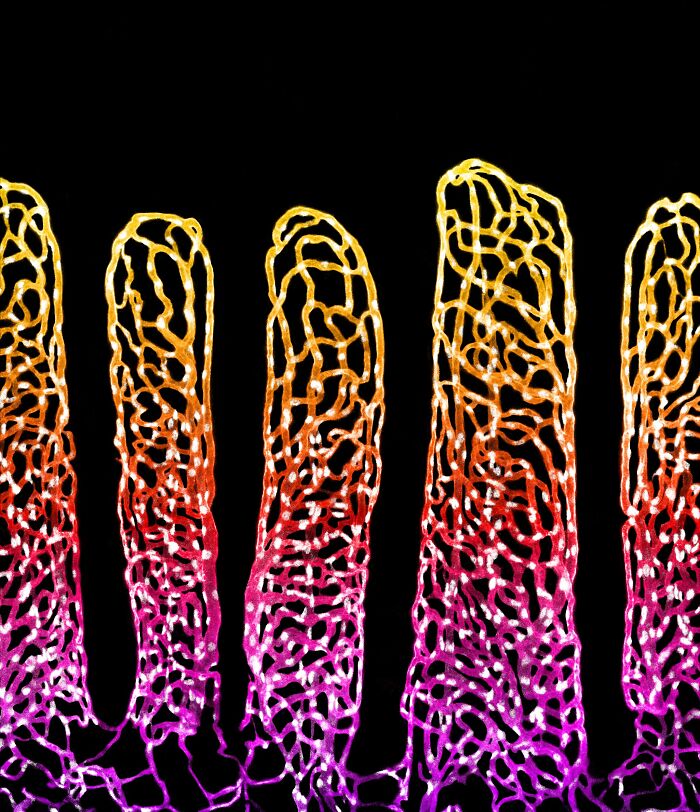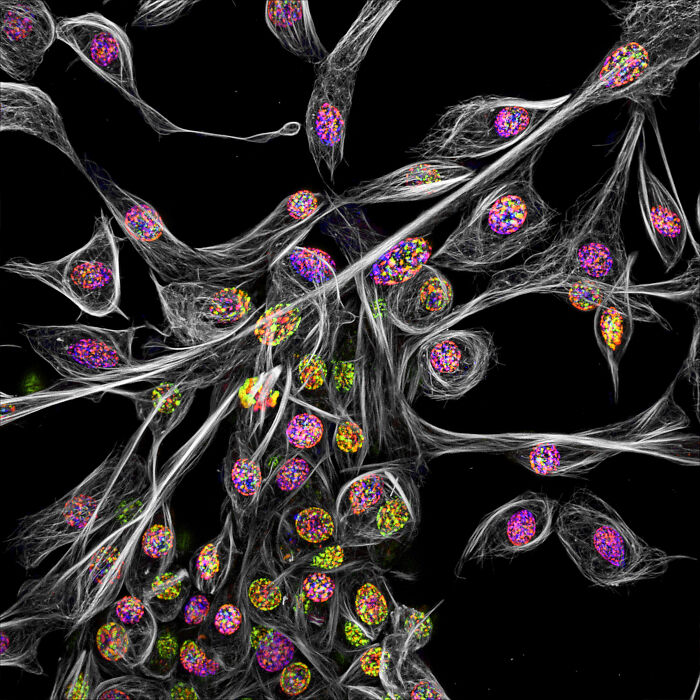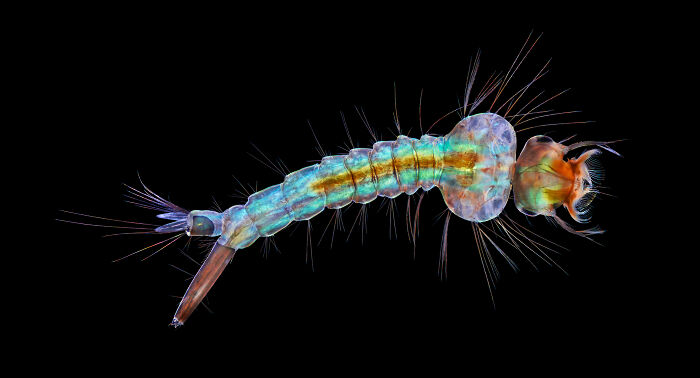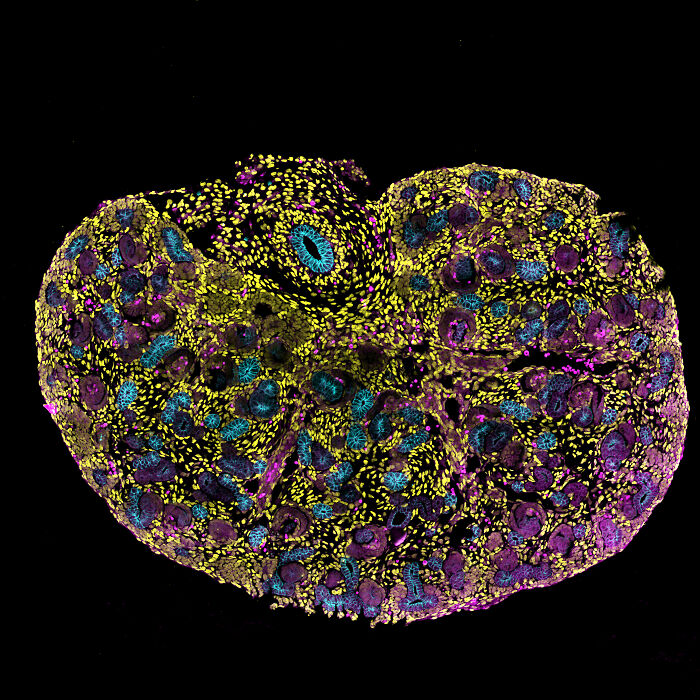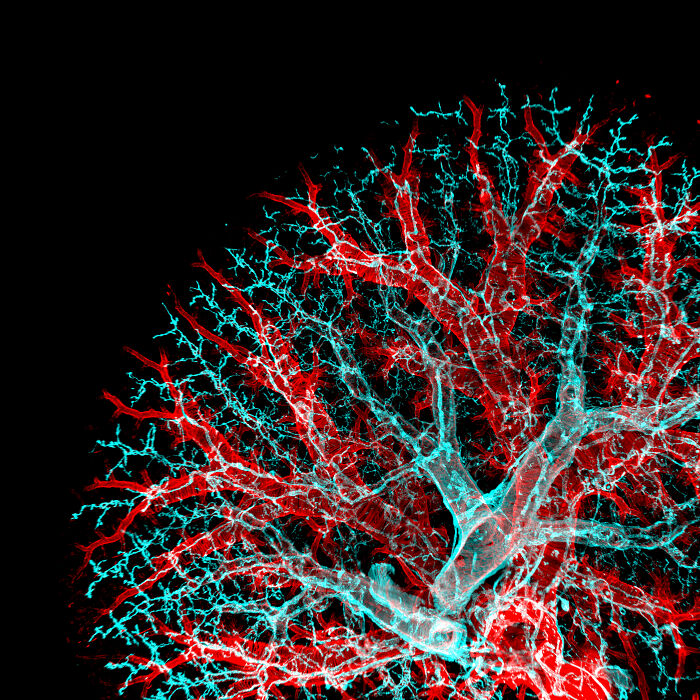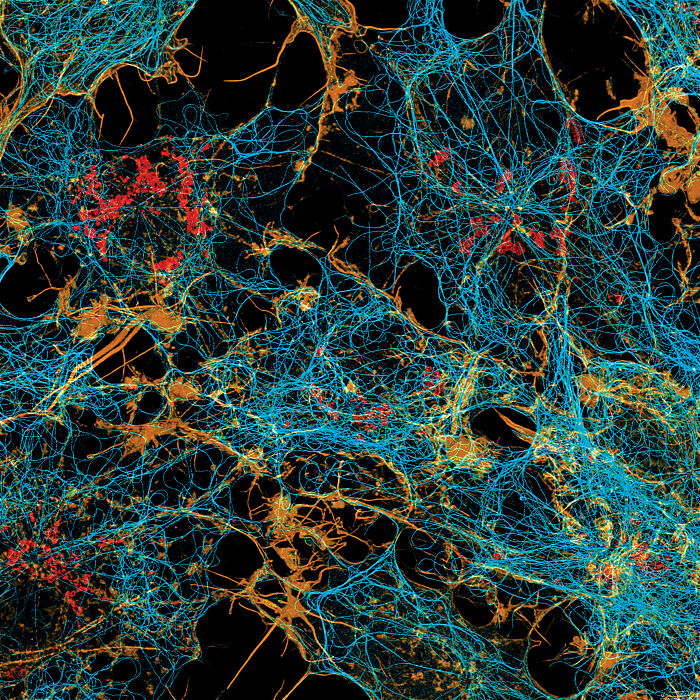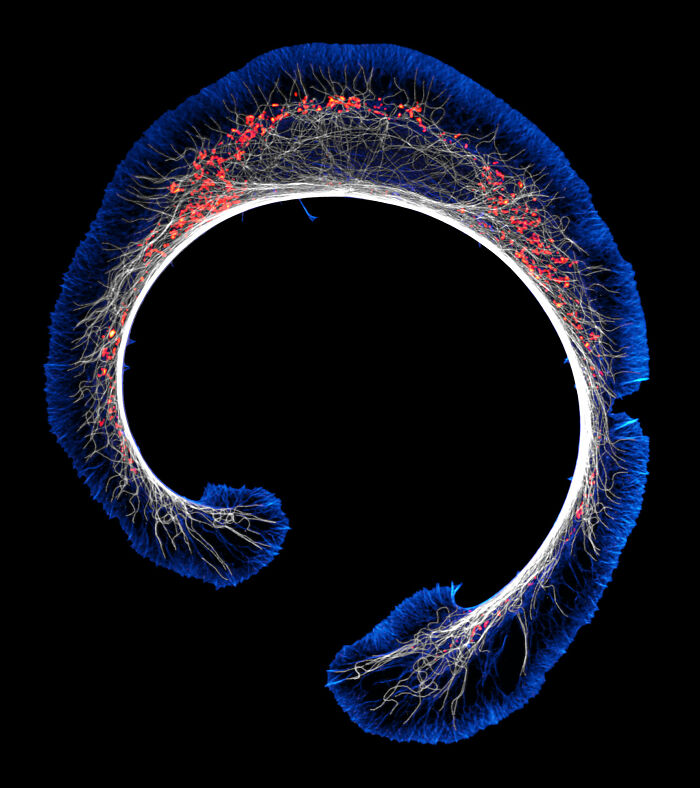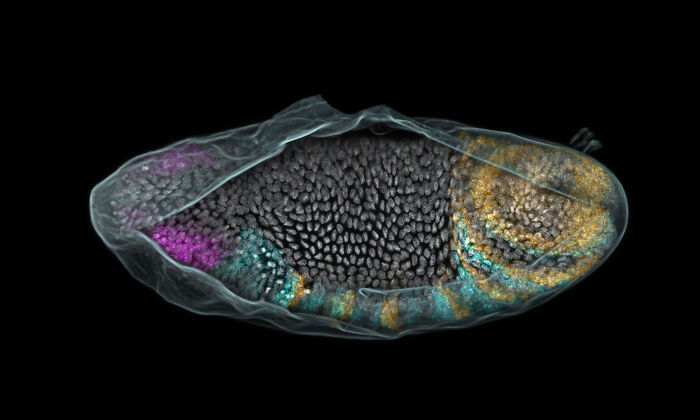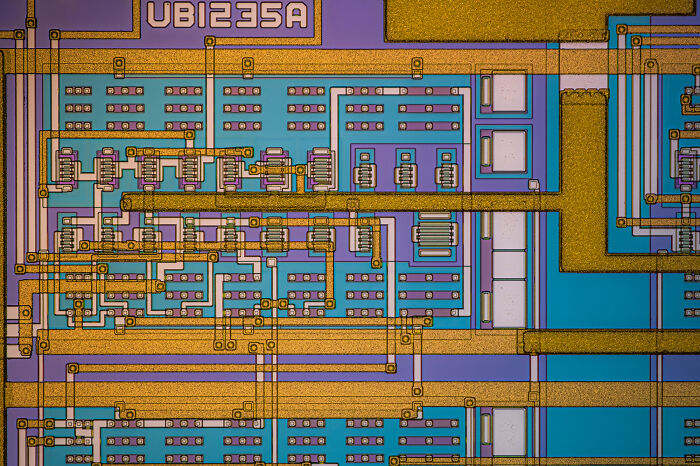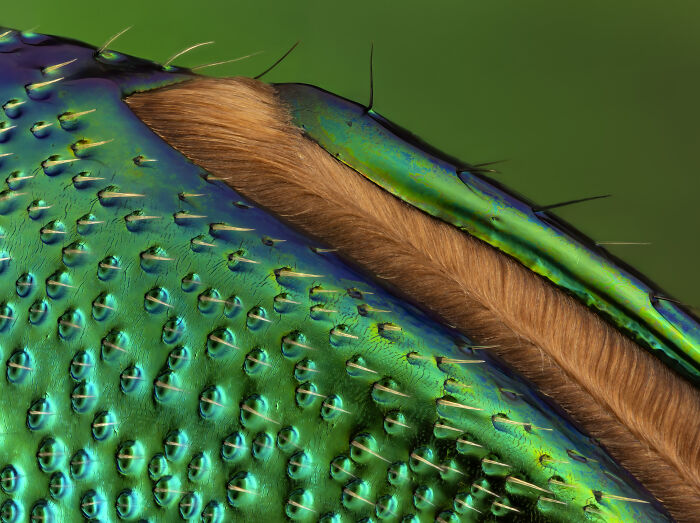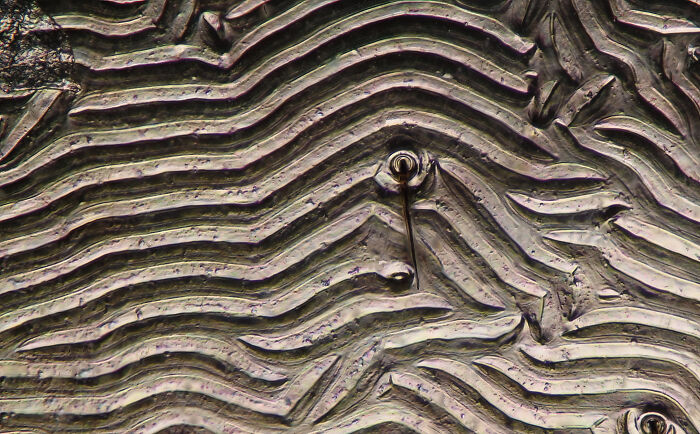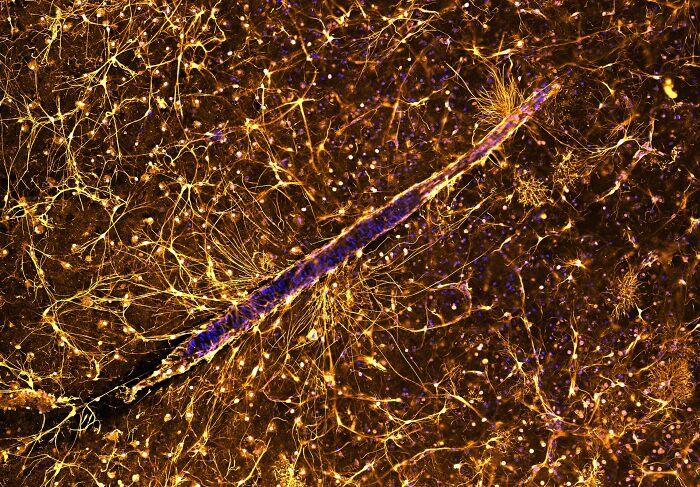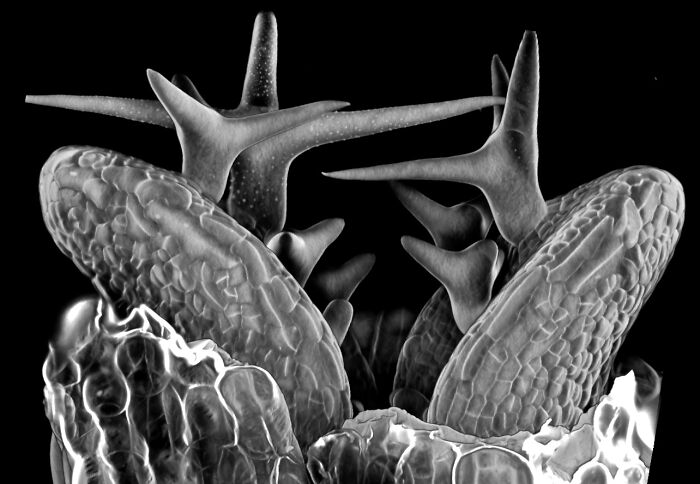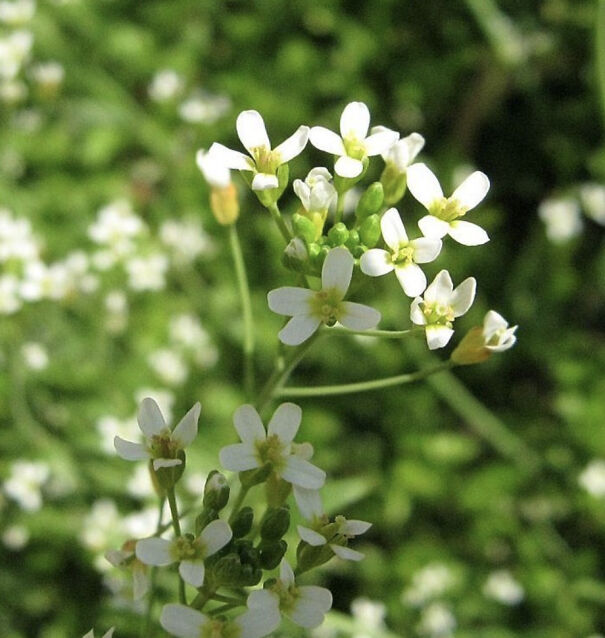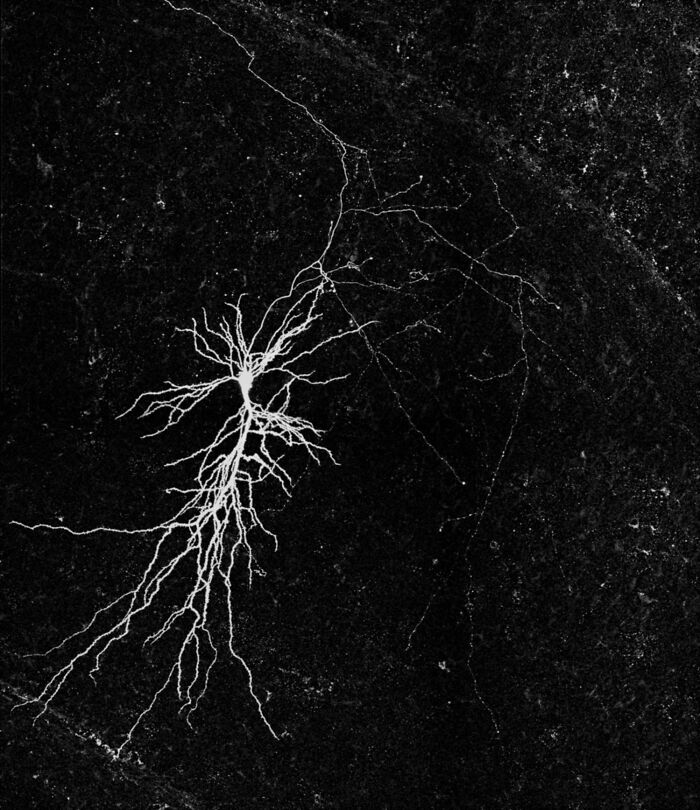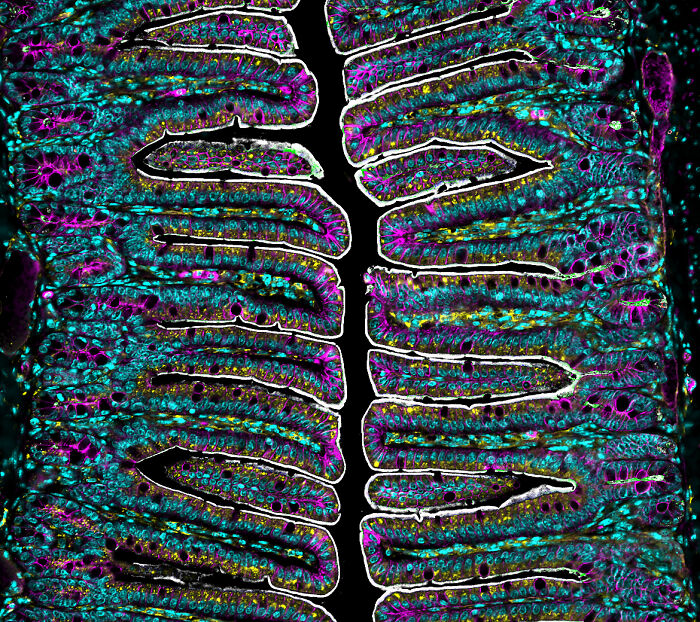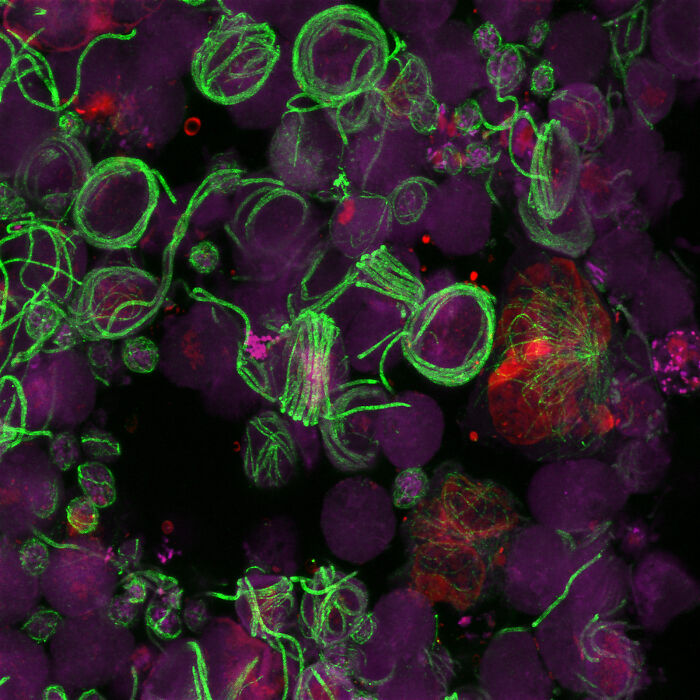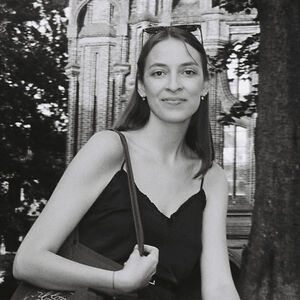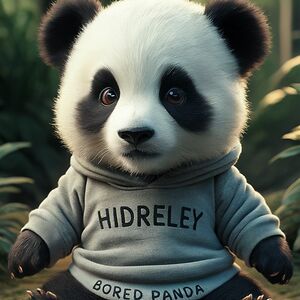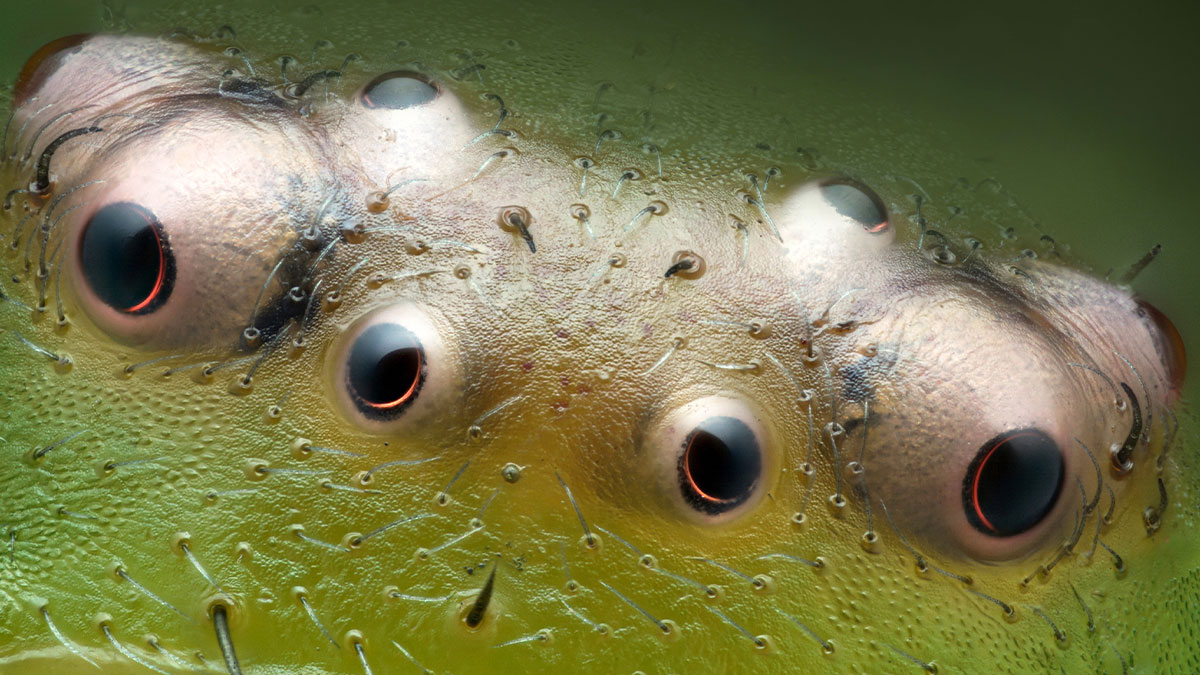
16Kviews
30 Mind-Blowing Microscopic Images From The 2024 Nikon Small World Photomicrography Contest
The 2024 Nikon Small World Photomicrography Competition, now in its 50th year, celebrates the beauty and science behind the smallest details of our world. Each year, scientists and artists from around the globe submit stunning microscope images that reveal extraordinary views of life on a microscopic scale. From intricate cell structures to fascinating natural phenomena, these images offer a unique glimpse into the hidden world around us.
This year’s winners did not disappoint. First place was awarded to Dr. Bruno Cisterna for his incredible image of mouse brain tumor cells, which sheds light on neurodegenerative diseases like Alzheimer's and ALS. The 2024 competition continues to highlight how microscopy advances both art and science.
More info: nikonsmallworld.com | Instagram | Facebook | x.com
This post may include affiliate links.
Image Of Distinction - Zhang Chao
National Astronomical Observatories, Chinese Academy of Sciences
Beijing, China
"Beach sand."
The organizers of Nikon Small World 2024 revealed that judges reviewed entries from around the world to choose the winners. They looked for images that stood out for their originality, the information they showed, technical skill, and visual appeal.
This year, the competition received about 2,100 photos from 80 different countries.
Image Of Distinction - Dr. Laurent Formery And Dr. Nathaniel Clarke
Stanford University
Department of Molecular and Cell Biology
Pacific Grove, California, USA
"Nervous system of a young sea star."
12th Place - Daniel Knop
Oberzent-Airlenbach, Hessen, Germany
"Wing scales of a butterfly (Papilio ulysses) on a medical syringe needle."
Dr. Cisterna’s winning image is not just beautiful—it’s important for science. His work helps us understand how changes in the structure of brain cells may lead to diseases like Alzheimer’s and ALS. By capturing this image, Dr. Cisterna gives us a better view of how these diseases work, which could help find treatments in the future. His image truly combines science and art, showing how powerful and meaningful microscopy can be.
"One of the main problems with neurodegenerative diseases is that we don't fully understand what causes them,” said Dr. Cisterna. “To develop effective treatments, we need to figure out the basics first. Our research is crucial for uncovering this knowledge and ultimately finding a cure. Differentiated cells could be used to study how mutations or toxic proteins that cause Alzheimer's or ALS alter neuronal morphology, as well as to screen potential drugs or gene therapies aimed at protecting neurons or restoring their function.”
Image Of Distinction - Timothy Boomer
Vacaville, California, USA
"Slime mold (Prototrichia metallica)."
Image Of Distinction - Dr. Håkan Kvarnström
Bromma, Sweden
"Peacock plume feather."
“After three years of research, we finally published our findings four months ago in the Journal of Cell Biology, and there's still more work to be done. I’m deeply passionate about scientific imaging; I’ve been following the Nikon Small World contest for about 15 years. It's an incredible contest that highlights the beauty of photomicrography but also inspires continued exploration and innovation in the field," said Dr. Cisterna.
Honorable Mention - Dr. Igor Robert Siwanowicz
Howard Hughes Medical Institute (HHMI), Janelia Research Campus
Ashburn, Virginia, USA
"Antenna of a mole crab."
3rd Place - Chris Romaine
Port Townsend, Washington, USA
"Leaf of a cannabis plant. The bulbous glands are trichomes. The bubbles inside are cannabinoid vesicles."
Second place went to Dr. Marcel Clemens, who captured an electrical arc between a pin and a wire, created by a 10,000-volt charge. Third place was awarded to Chris Romaine for his close-up of a cannabis leaf, showing tiny trichomes and cannabinoid vesicles. These images, along with many others from the 2024 competition, show the beauty and variety of the microscopic world, blending creativity and science in exciting ways.
Image Of Distinction - Uwe Lange
Hannover, Niedersachsen, Germany
"Pollen on the compound eyes of a fly."
I know, I'm childish and all, but... that pollen looks like a penis. 🤭
Image Of Distinction - Ted Kinsman
Rochester Institute of Technology
Photosciences Department
Rochester, New York, USA
"A common house cat claw."
The 2024 judging panel included:
• Adrian Coakley, Director of Photography at National Geographic Books;
• Michelle S. Itano, Ph.D., Assistant Professor of Cell Biology and Physiology and Director of the Neuroscience Microscopy Core at the University of North Carolina at Chapel Hill;
• Emily Petersen, Photography Managing Editor at Science Magazine;
• Clare Waterman, Ph.D., Cell Biologist and Member of the National Academy of Sciences;
• Jennifer C. Waters, Ph.D., Director of the Core for Imaging Technology & Education at Harvard Medical School;
• Samantha Yammine, Ph.D., Neuroscientist and Science Communicator.
13th Place - Paweł Błachowicz
Bedlno, Świętokrzyskie, Poland
"Eyes of green crab spider (Diaea dorsata)."
That looks like something from the more spooky version of Monsters, Inc.
2nd Place - Dr. Marcel Clemens
Verona, Veneto, Italy
"Electrical arc between a pin and a wire."
looks like a ufo sending a beam down while electrocuting the ground
5th Place - Thomas Barlow And Connor Gibbons
Columbia University
Department of Neurobiology and Behavior
New York, New York, USA
"Cluster of octopus (Octopus hummelincki) eggs."
Honorable Mention - Randy Fullbright
Vernal, Utah, USA
"Agatized dinosaur bone."
Honorable Mention - Jochen Stern
Mannheim, Baden-Wuerttemberg, Germany
"Golden bug eggs on a sage leaf."
I especially like the surface of the sage leaf. You can feel it is velvety to the touch, and this picture shows exactly why that is.
Honorable Mention - Dr. Bruce Douglas Taubert
Glendale, Arizona, USA
"Ocelli between the compound eyes of a yellow jacket."
Image Of Distinction - Thomas Neumann
Tübingen, Baden-Württemberg, Germany
"Ink dot on Japanese washi paper."
6th Place - Henri Koskinen
Helsinki University
Helsinki, Uudenmaan lääni, Finland
"Slime mold (Cribraria cancellata)."
Image Of Distinction - Elkhan Yusifov And Dr. Martina Schaettin
University of Zurich
Department of Molecular Life Sciences
Zurich, Switzerland
"Developing nervous system in the eye of a 7-day-old chick embryo."
7th Place - Gerhard Vlcek
Maria Enzersdorf, Austria
"Cross section of European beach grass (Ammophila arenaria) leaf."
Honorable Mention - Daniel Evrard
Aywaille, Liege, Belgium
"Vinyl player needle on scratched vinyl disk."
"scratched" as in damaged? I'd like to see how that looks with a pristine vinyl.
9th Place - John-Oliver Dum
Medienbunker Produktion
Bendorf, Rheinland Pfalz, Germany
"Pollen in a garden spider (Araneus) web."
Image Of Distinction - Dr. Saikat Ghosh
National Institutes of Health
NICHD
Bethesda, Maryland, USA
"Human neurons."
That one over in the back, by itself, is the one that stores the location of my car keys.
Image Of Distinction - Joshua Coogler
Dallas, North Carolina, USA
"Moss sporophyte with spores (green)."
Dallas NC is just NW of Charlotte, if anyone is wondering. ;)
Image Of Distinction - Daniel Knop
Oberzent-Airlenbach, Hessen, Germany
"Opening of a hibiscus flower (Hibiscus moscheutos) exposing the pollen in four stages, each ten minutes apart."
11th Place - Dr. Ferenc Halmos
Bánd, Veszprém, Hungary
"Slime mold on a rotten twig with water droplets."
Image Of Distinction - Daniel Knop
Oberzent-Airlenbach, Hessen, Germany
"Dorsal part of cuckoo wasp (Hedychrum gerstaeckeri) abdomen."
Image Of Distinction - Jacek Myslowski
Wloclawek, Kujawko-Pomorskie, Poland
"Water mite (Arrenurus)."
16th Place - Marek Miś
Suwalki, Podlaskie, Poland
"Two water fleas (Daphnia sp.) with embryos (left) and eggs (right)."
Image Of Distinction - Dr. Igor Robert Siwanowicz
Howard Hughes Medical Institute (HHMI), Janelia Research Campus
Ashburn, Virginia, USA
"Aster anther cross-section with pollen grains (green)."
Image Of Distinction - Dr. Robert Markus
so interesting ! Thank you so much for this dive into the infinitely small
Nikonsmallworld.com, if you're wondering. They also do videos. My personal favourites from this year are water droplets evaporating (https://www.nikonsmallworld.com/galleries/2024-small-world-in-motion-competition/water-droplets-peacock-butterfly-wing-scales), a tardigrade riding a worm (https://www.nikonsmallworld.com/galleries/2024-small-world-in-motion-competition/baby-tardigrade-and-nematode) and a weirdly soothing video (https://www.nikonsmallworld.com/galleries/2024-small-world-in-motion-competition/crystallization-of-magnesium-sulfate)
If only the author had given us a banana for scale. 845f3399a0...bd0135.jpg 
https://www.pinterest.com/pin/327285097898391026/
Load More Replies...I had seen this on another site but it didn't have the information of who took the photos and what it was, thank you for posting that. These are exquisite and a great reminder that the little things in life matter too.
Mother Nature has us beaten hands down, the shapes and colours that are hidden away in tiny form are awesome, even you mould spores!
so interesting ! Thank you so much for this dive into the infinitely small
Nikonsmallworld.com, if you're wondering. They also do videos. My personal favourites from this year are water droplets evaporating (https://www.nikonsmallworld.com/galleries/2024-small-world-in-motion-competition/water-droplets-peacock-butterfly-wing-scales), a tardigrade riding a worm (https://www.nikonsmallworld.com/galleries/2024-small-world-in-motion-competition/baby-tardigrade-and-nematode) and a weirdly soothing video (https://www.nikonsmallworld.com/galleries/2024-small-world-in-motion-competition/crystallization-of-magnesium-sulfate)
If only the author had given us a banana for scale. 845f3399a0...bd0135.jpg 
https://www.pinterest.com/pin/327285097898391026/
Load More Replies...I had seen this on another site but it didn't have the information of who took the photos and what it was, thank you for posting that. These are exquisite and a great reminder that the little things in life matter too.
Mother Nature has us beaten hands down, the shapes and colours that are hidden away in tiny form are awesome, even you mould spores!

 Dark Mode
Dark Mode  No fees, cancel anytime
No fees, cancel anytime 




